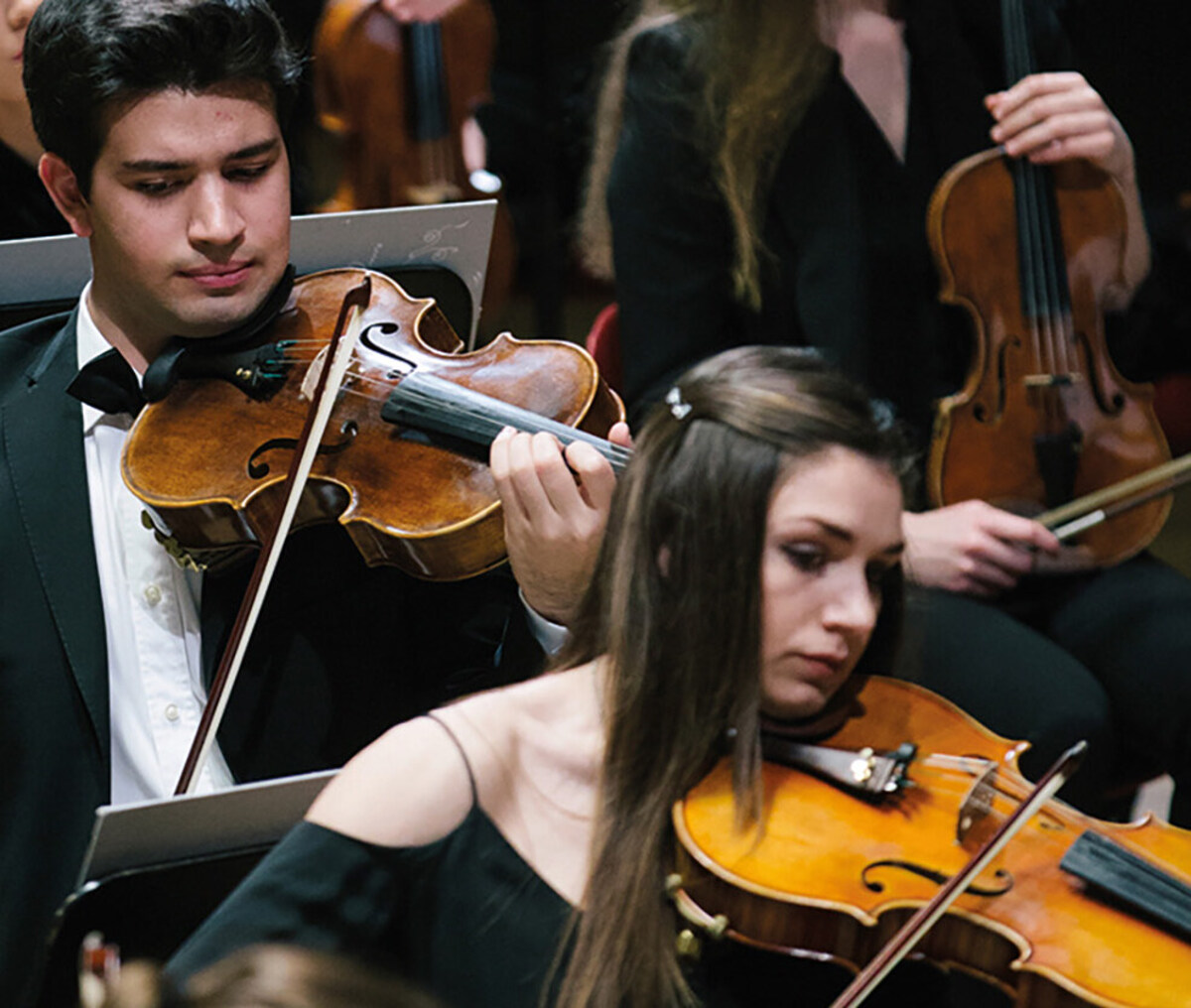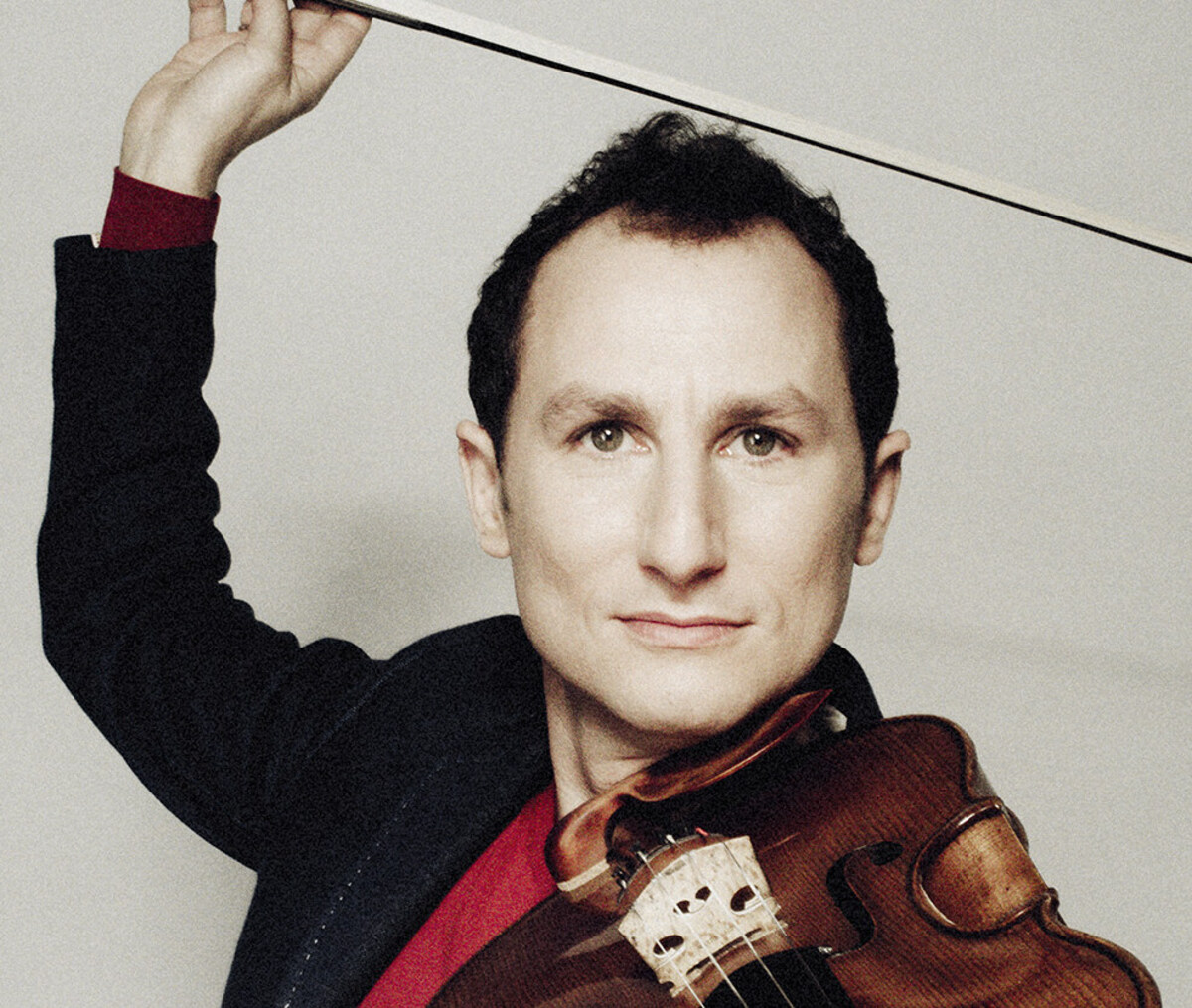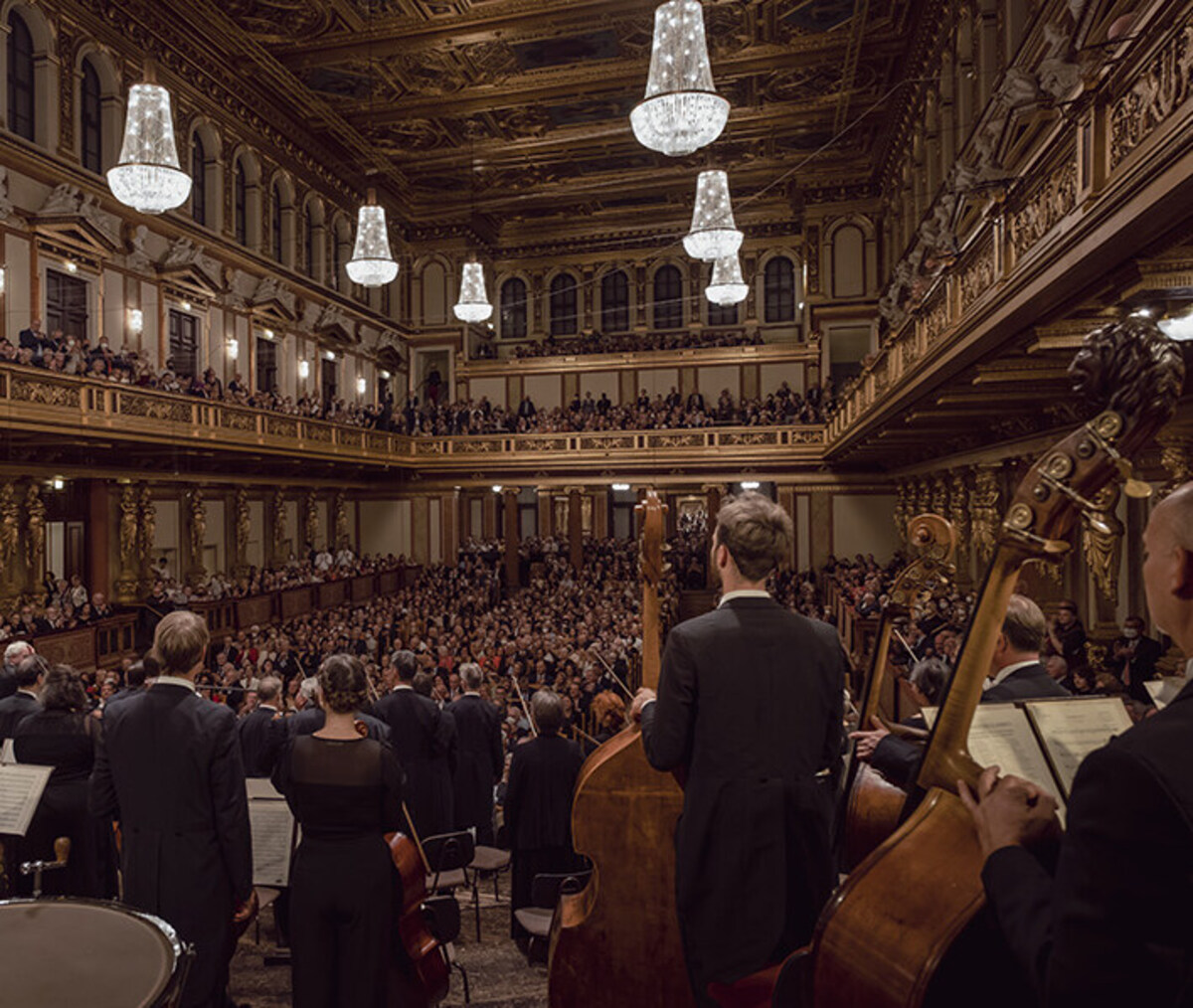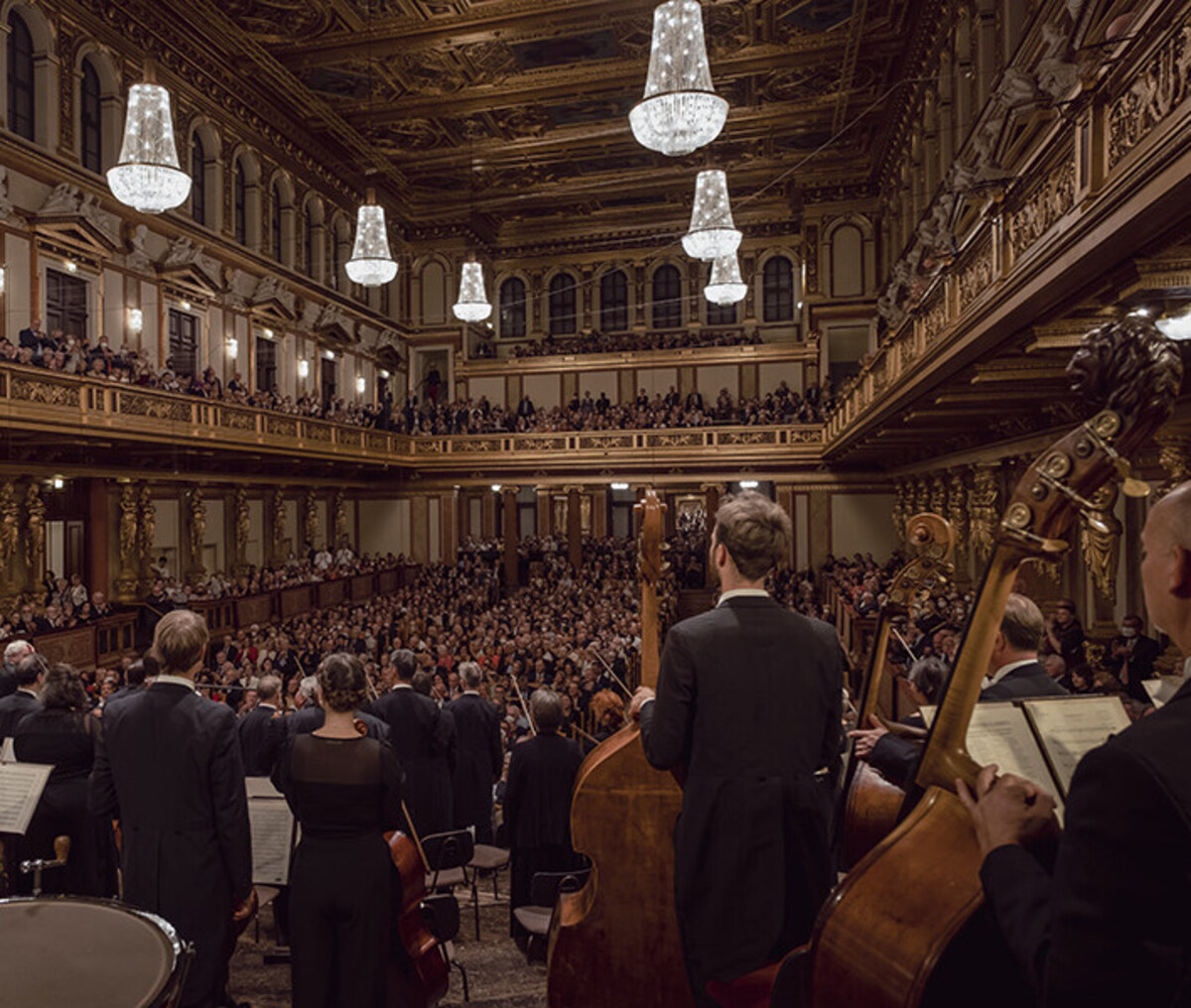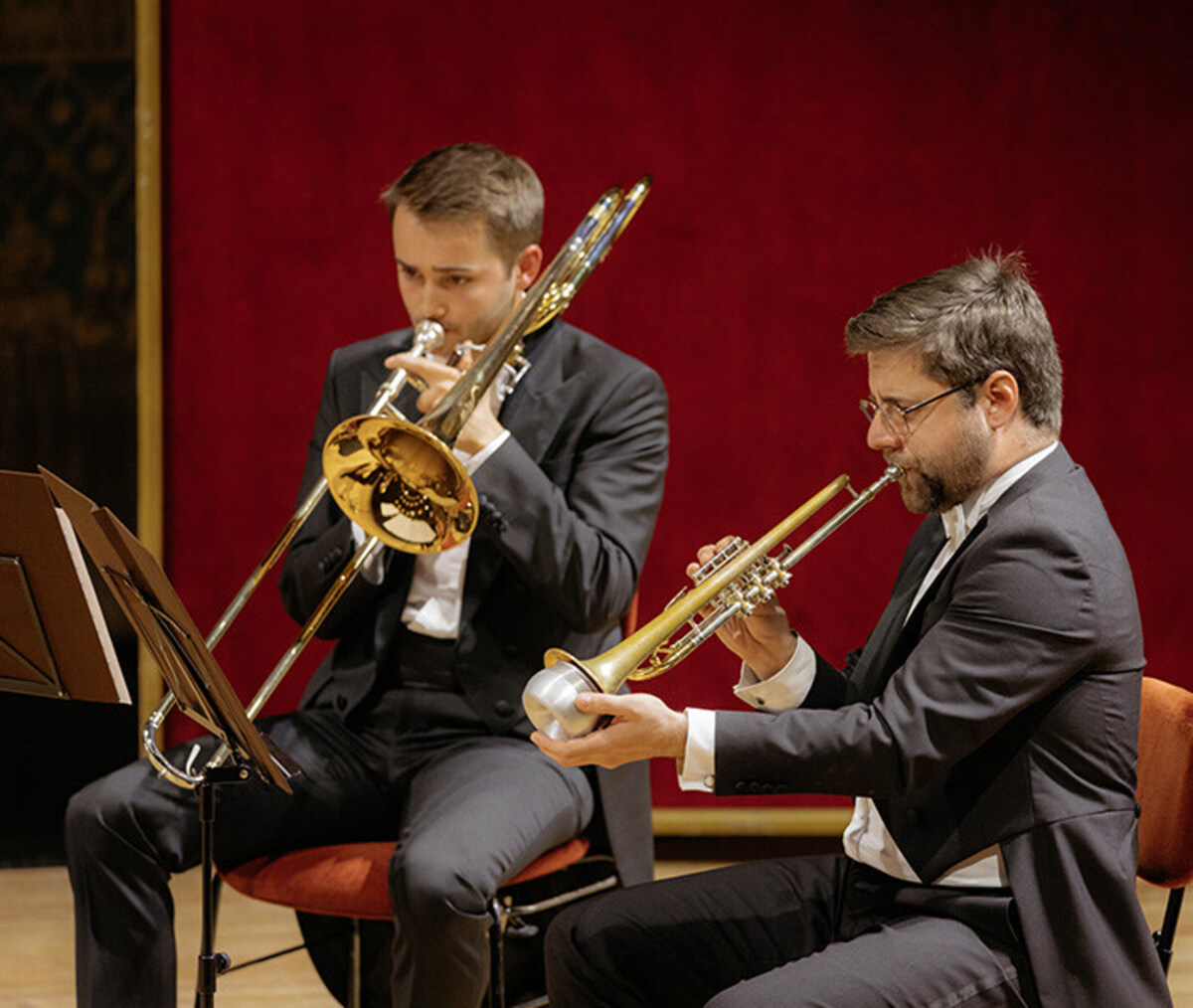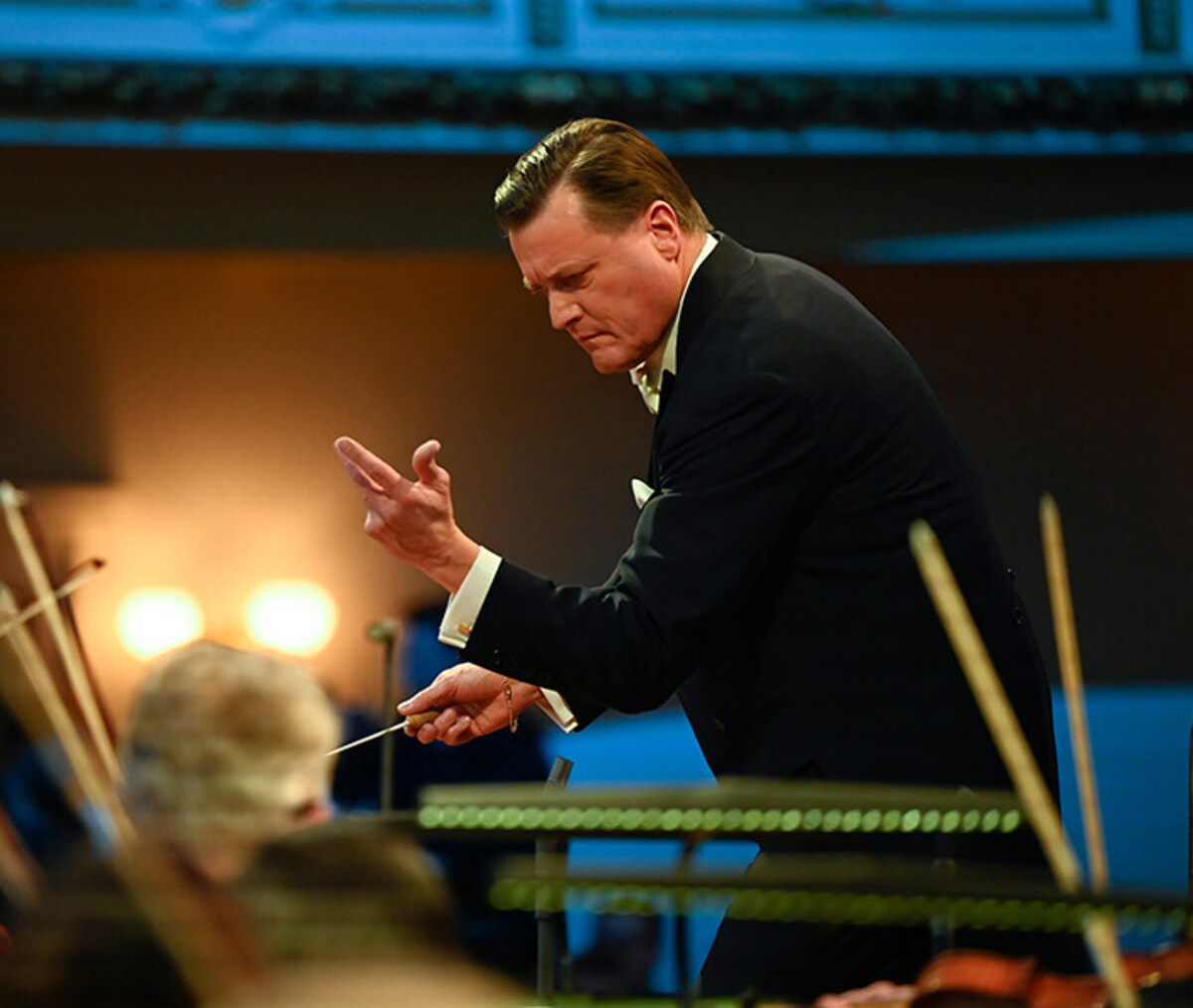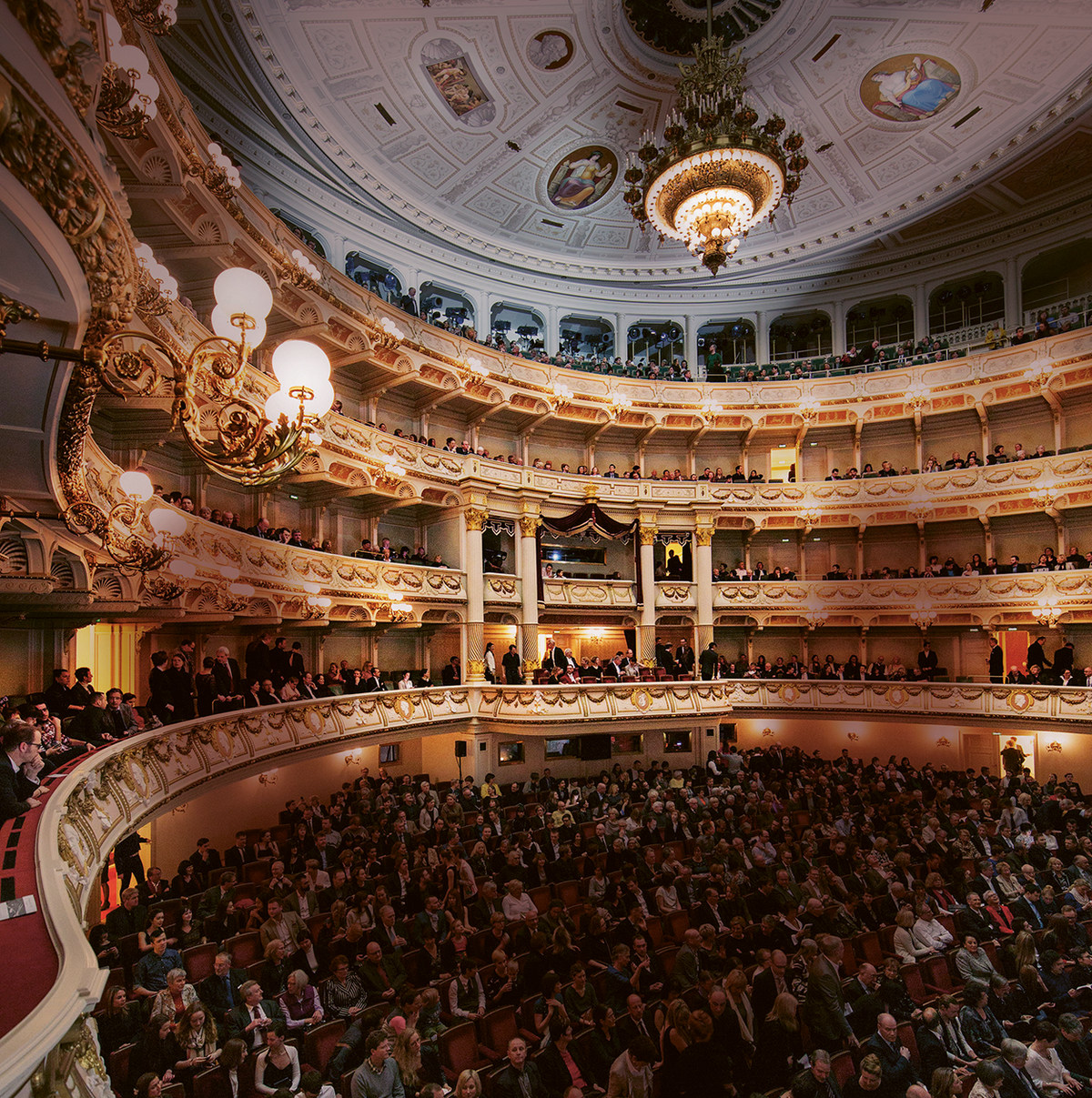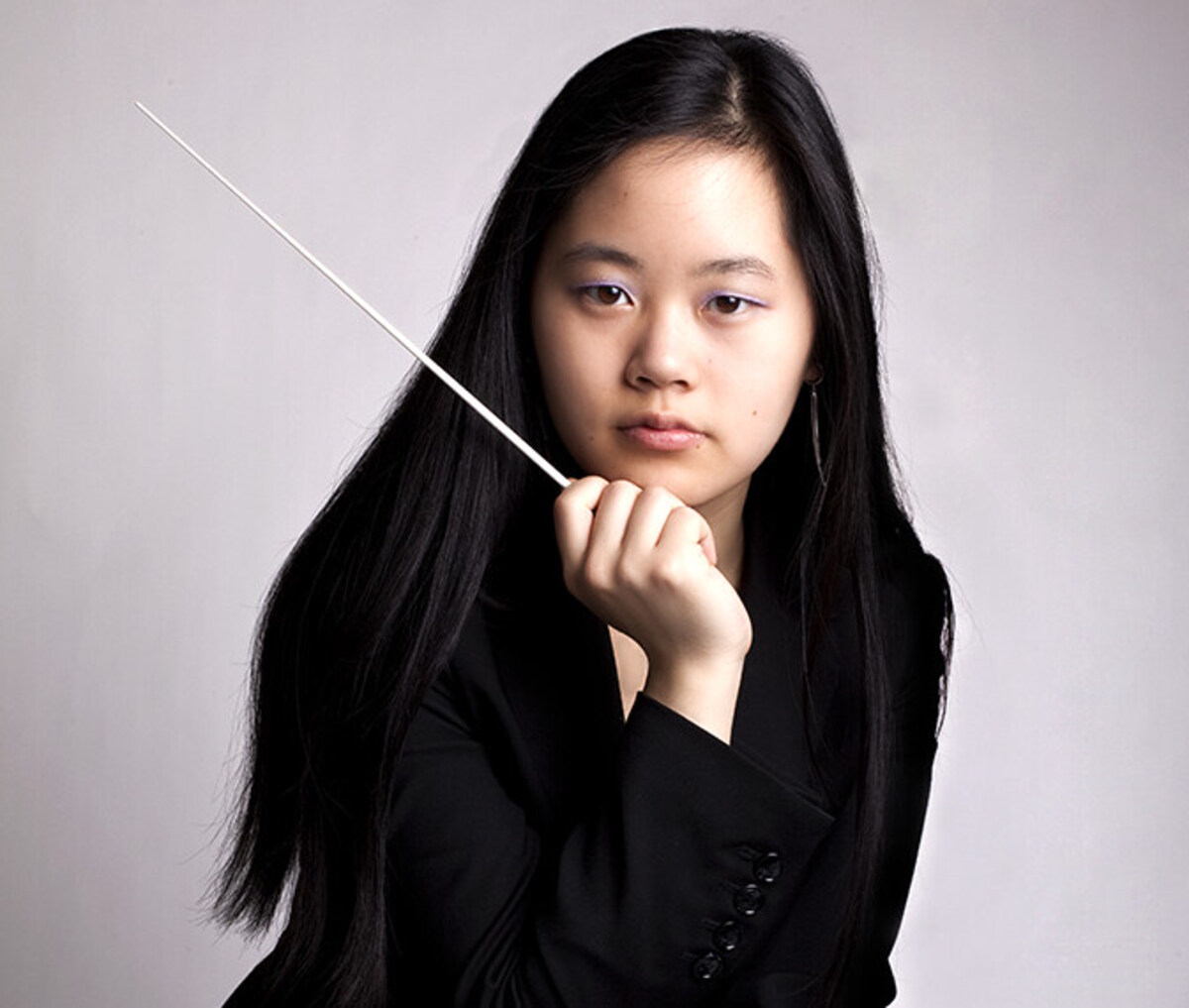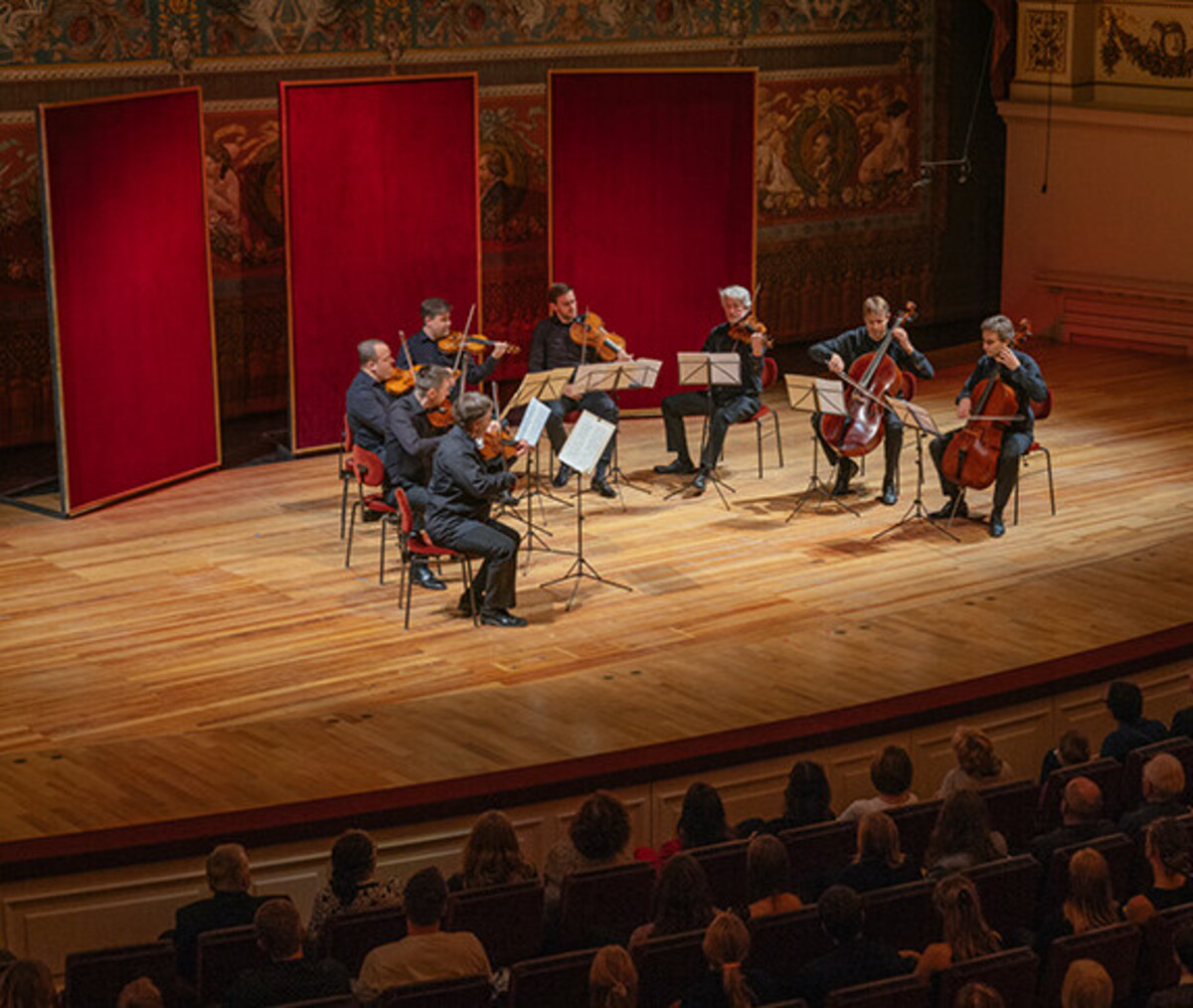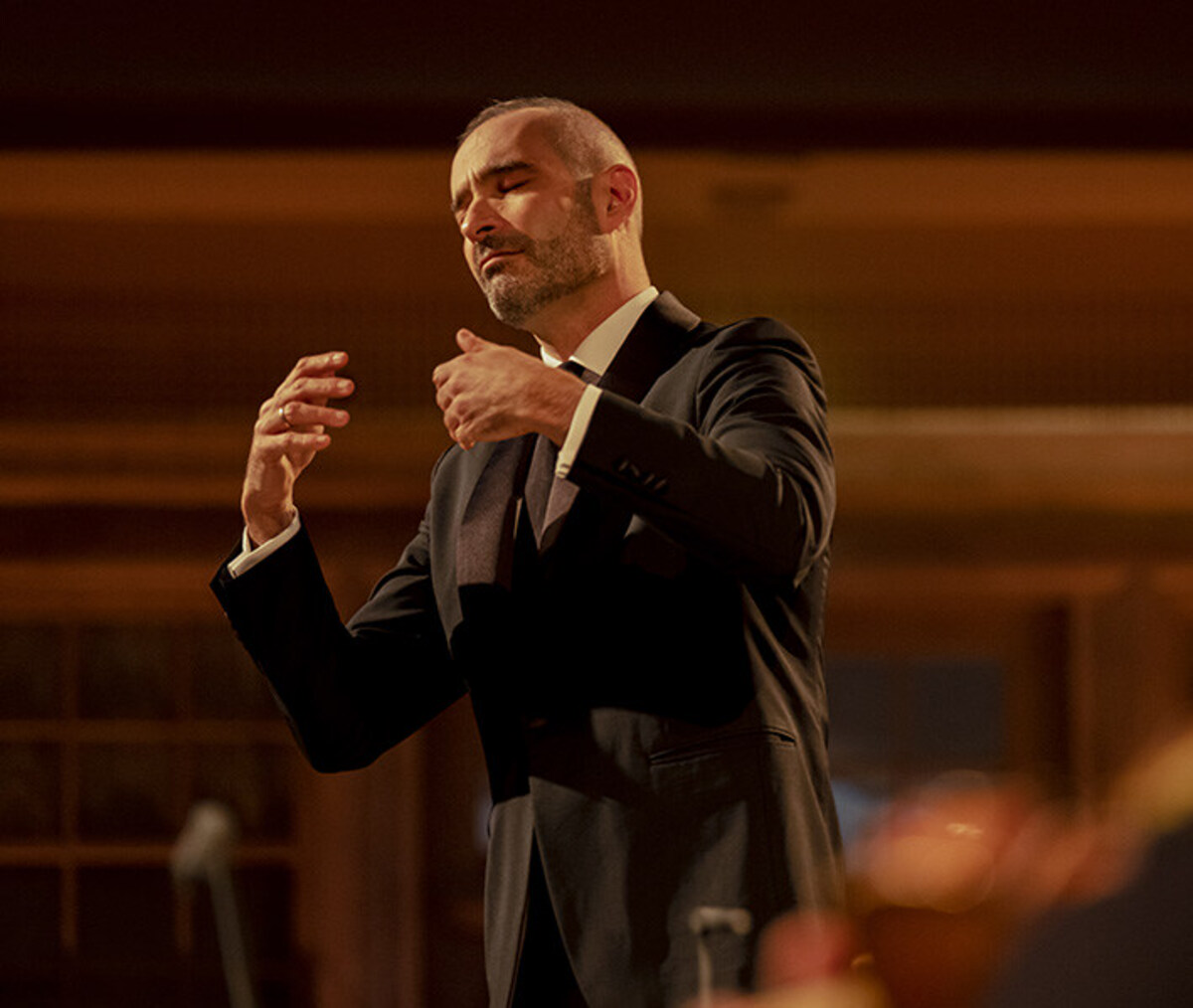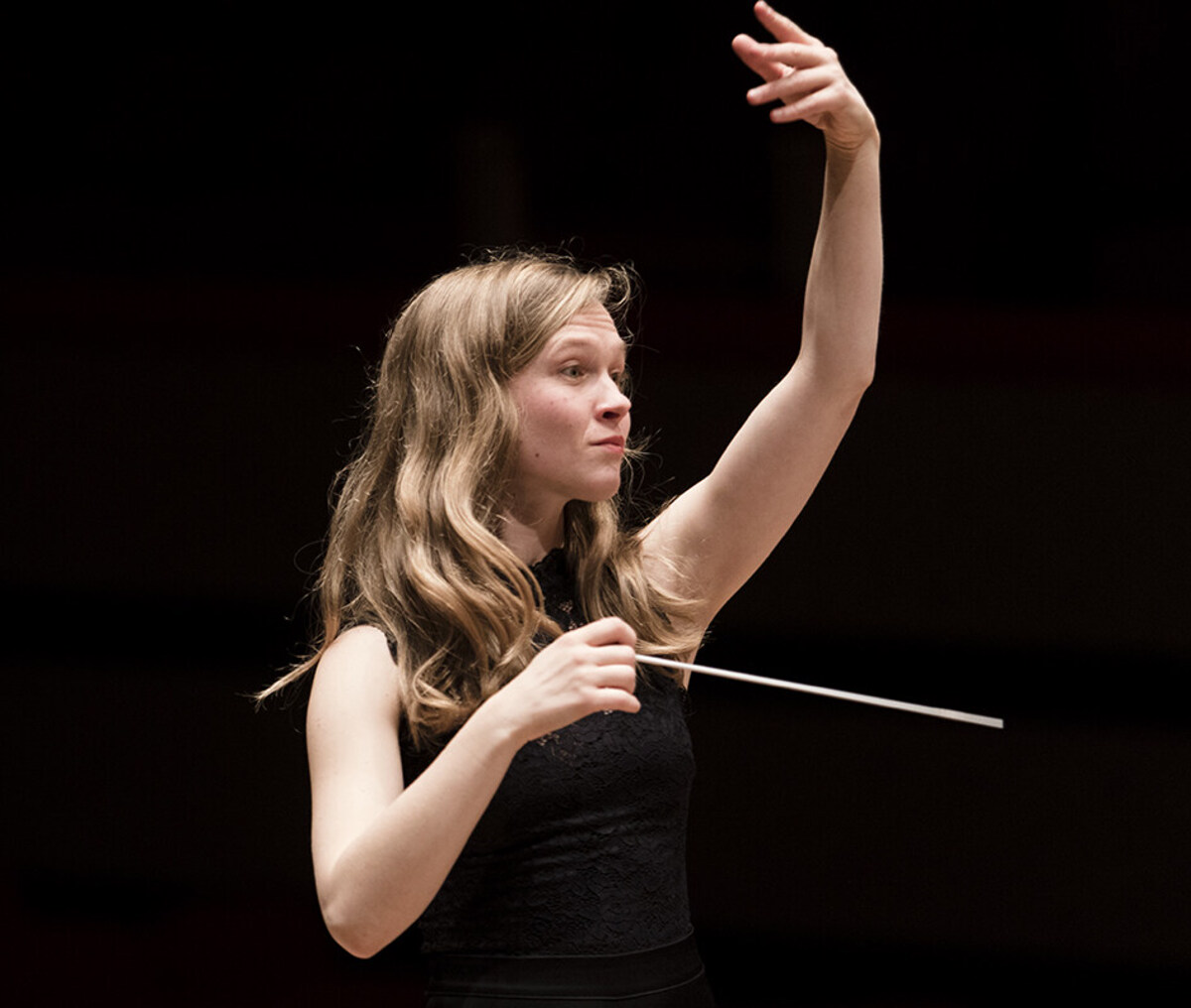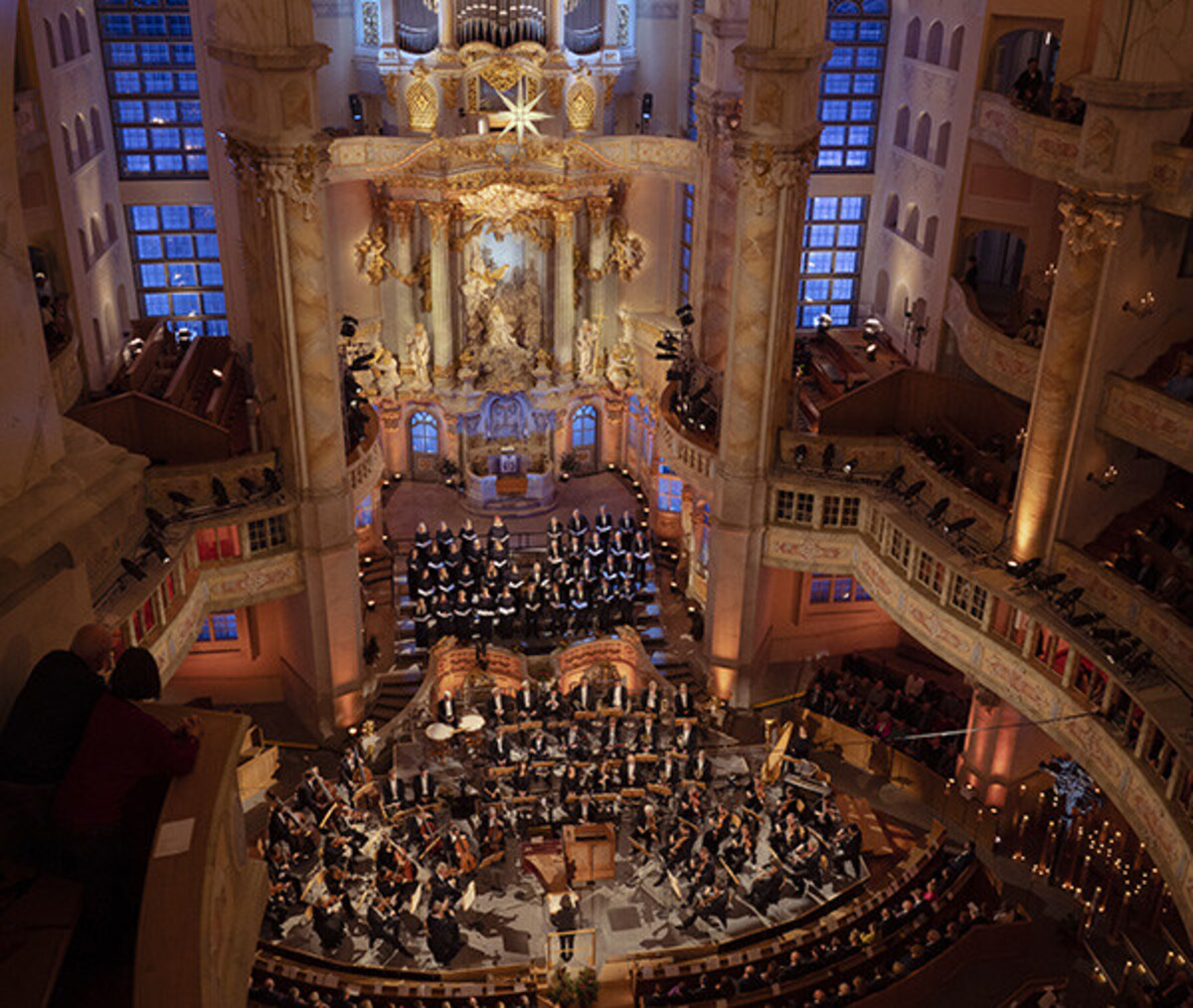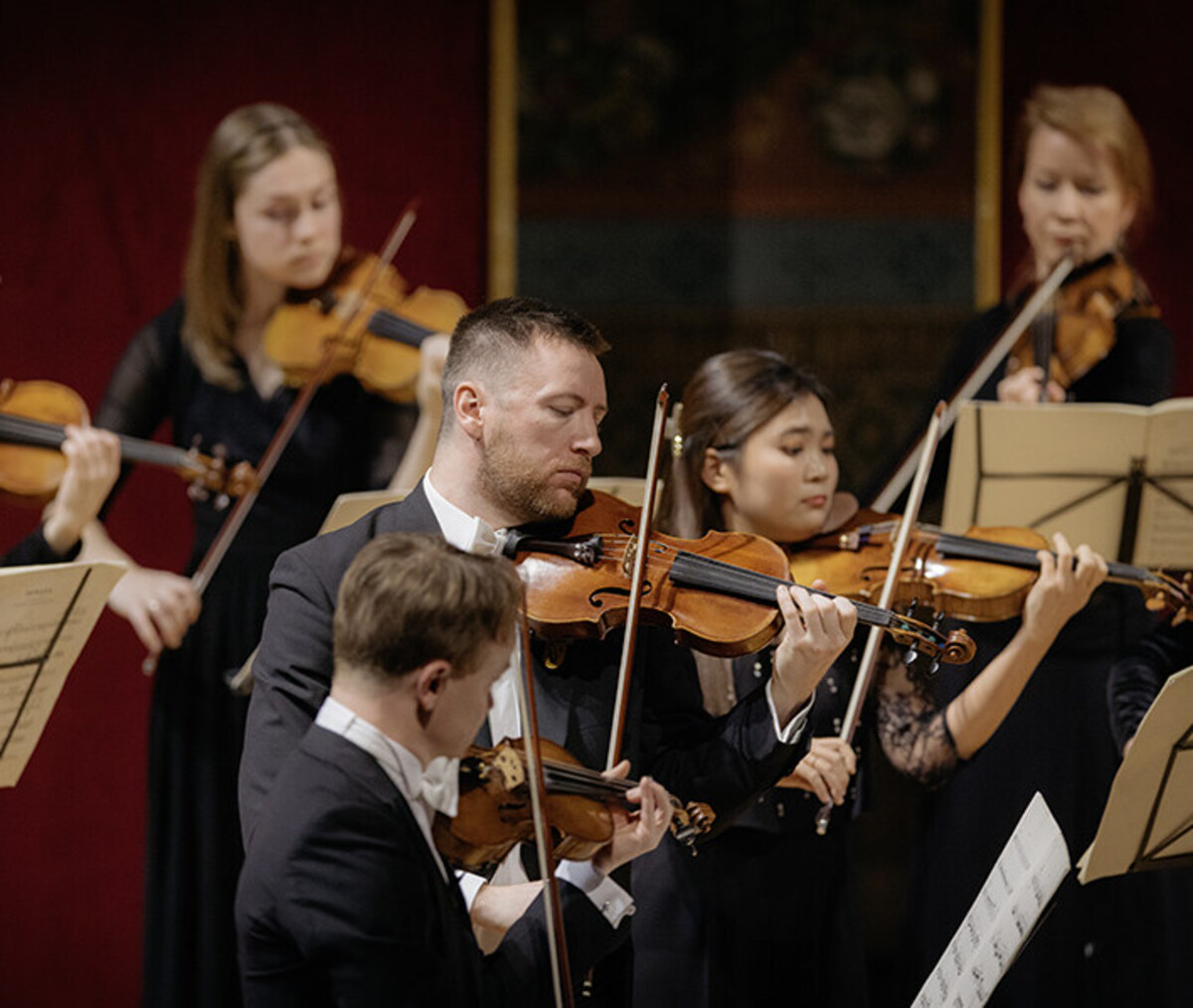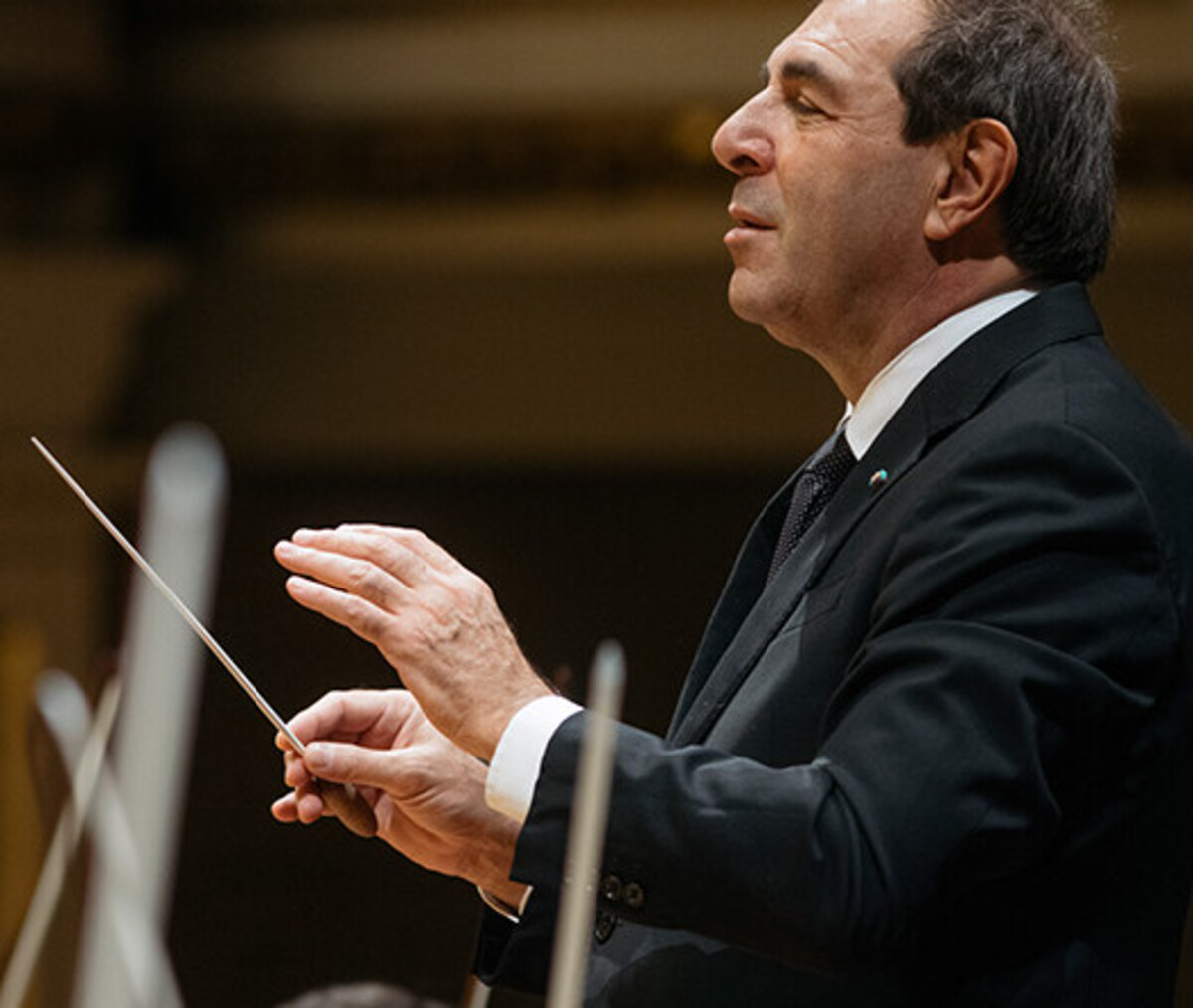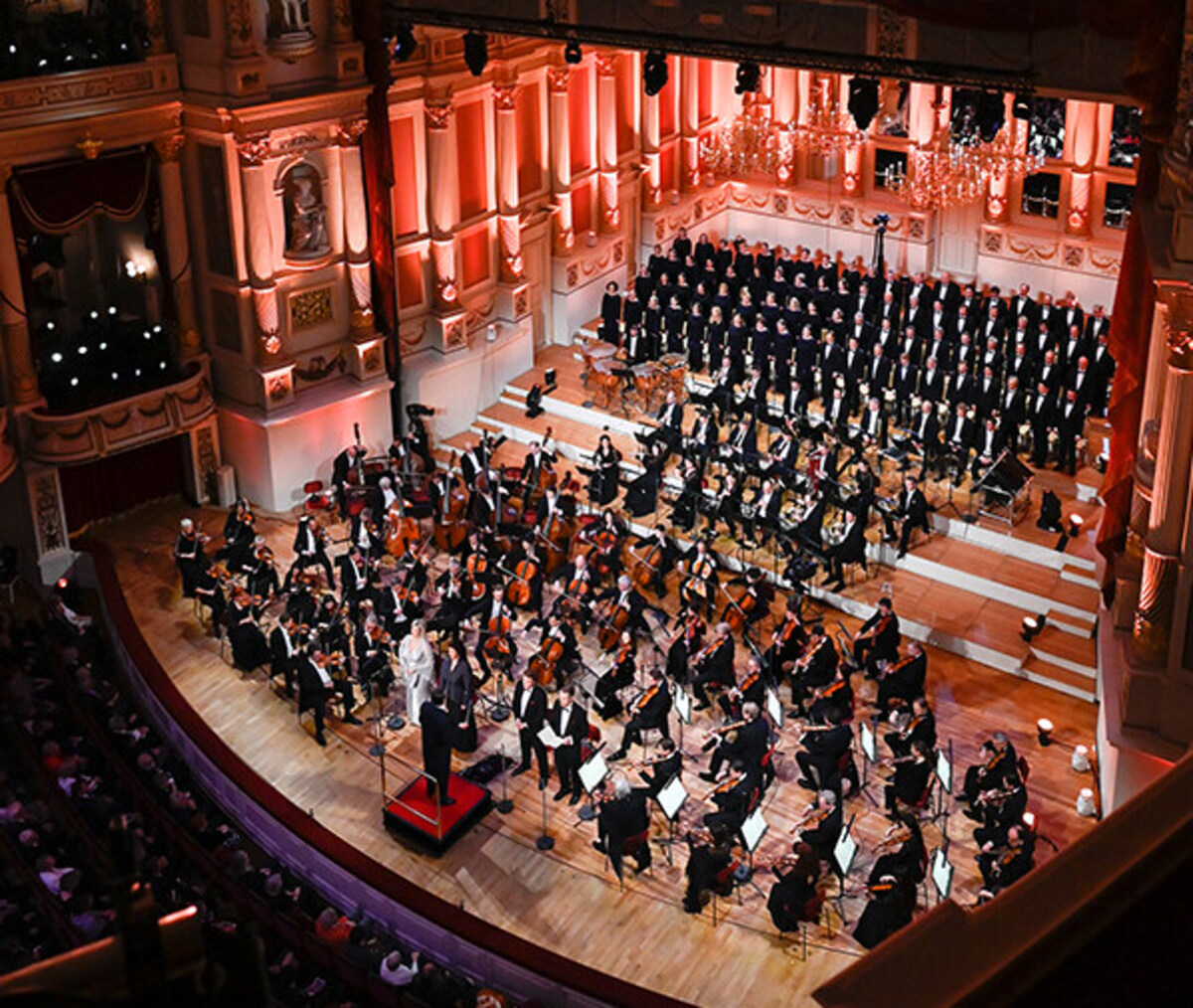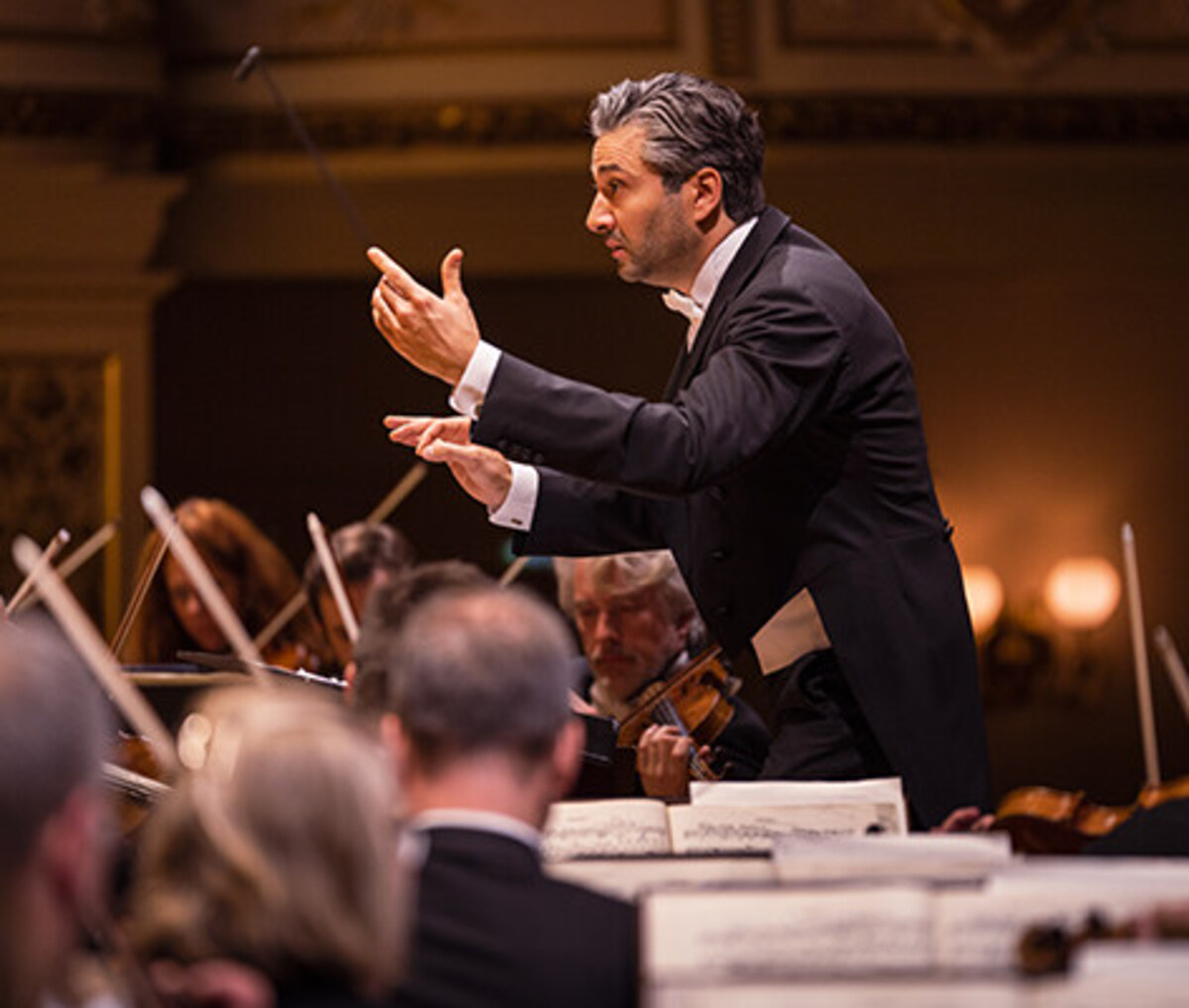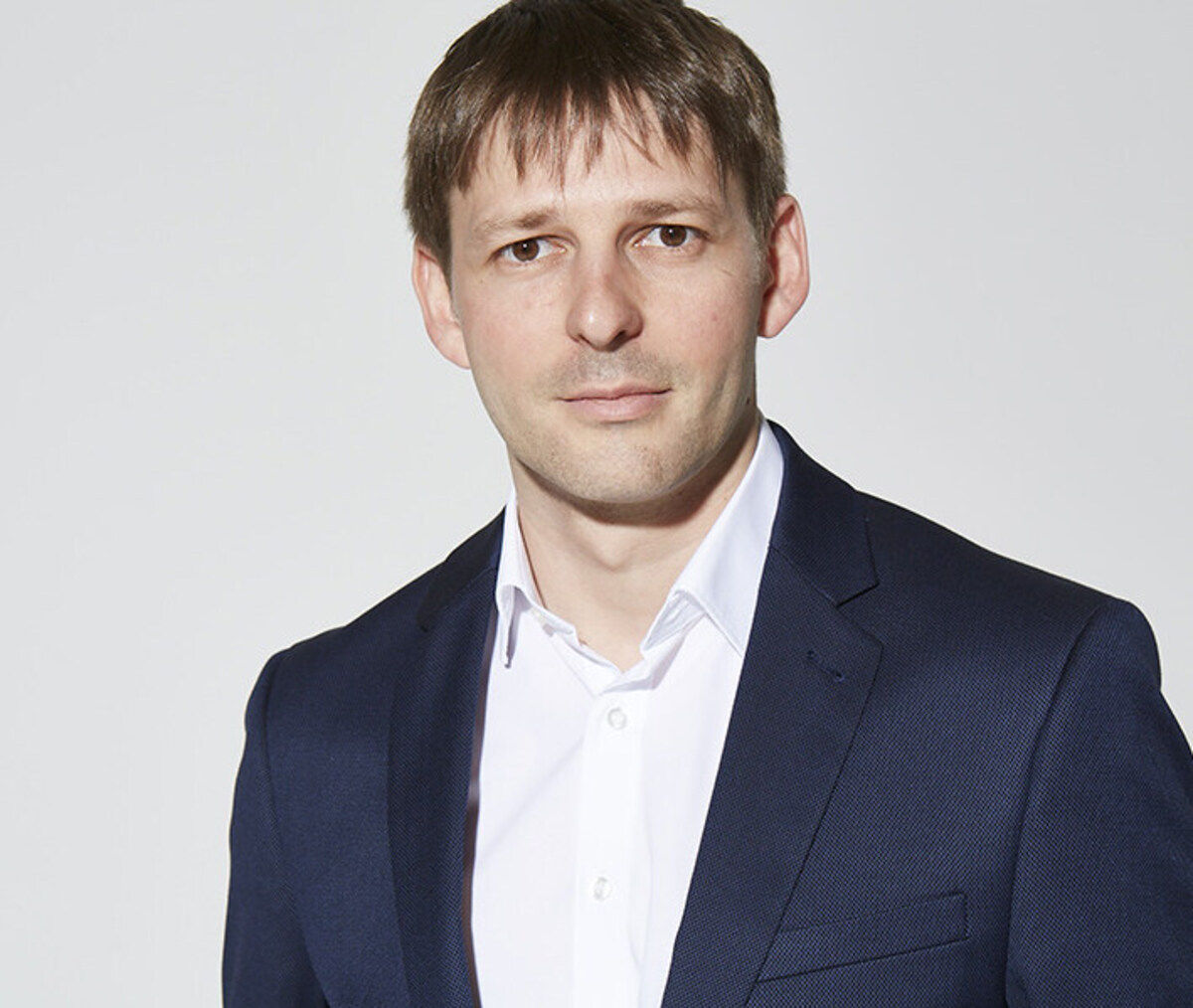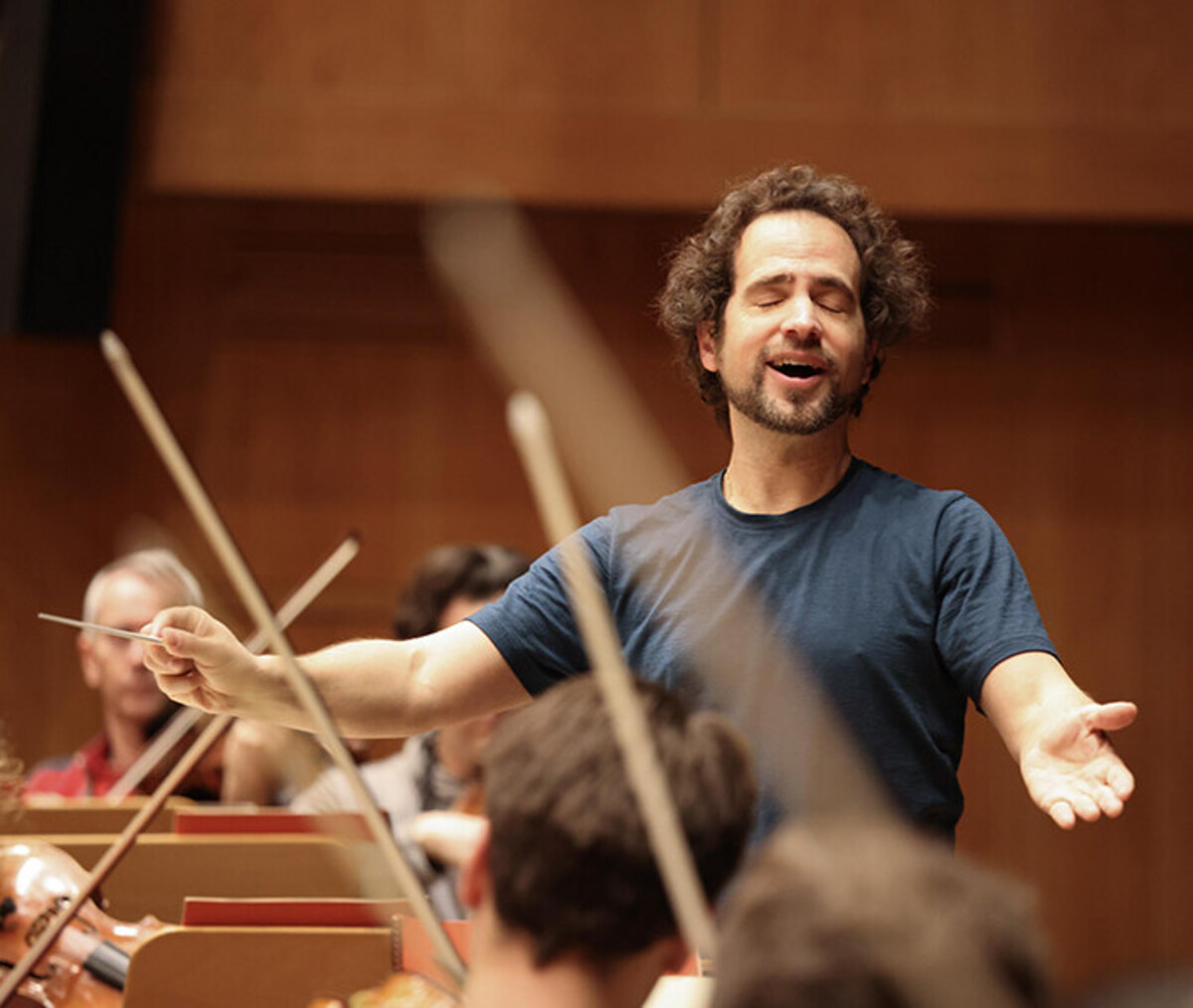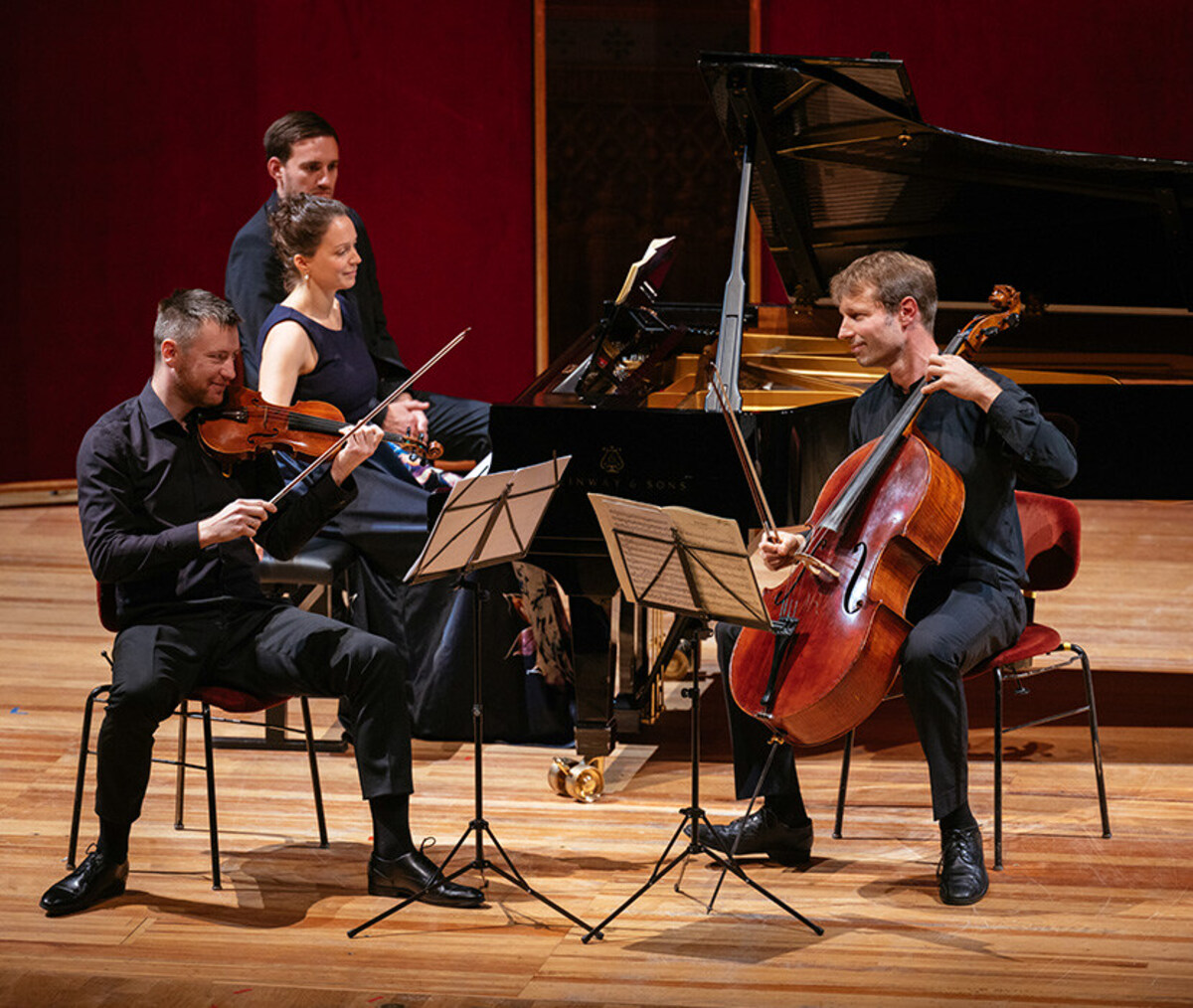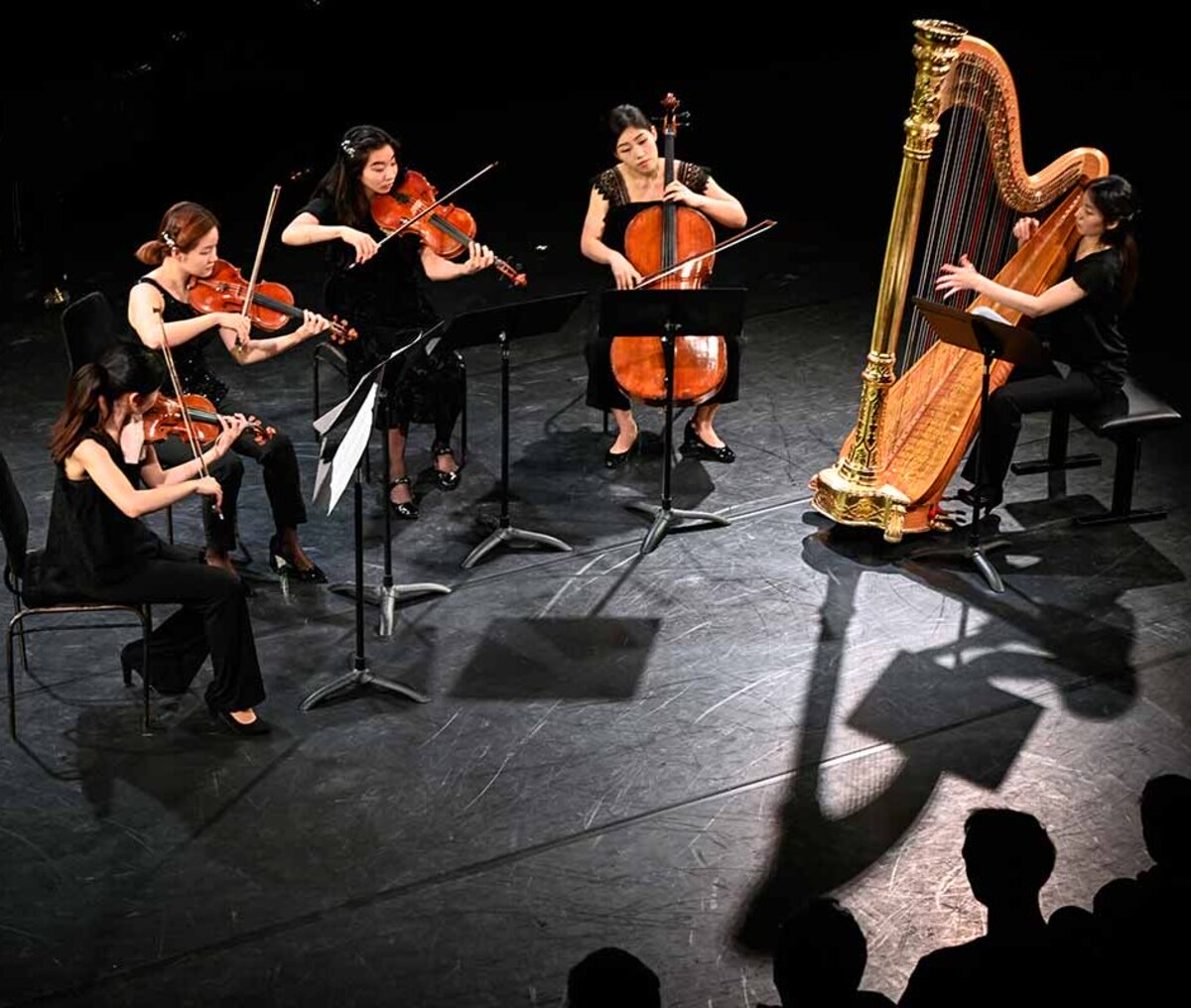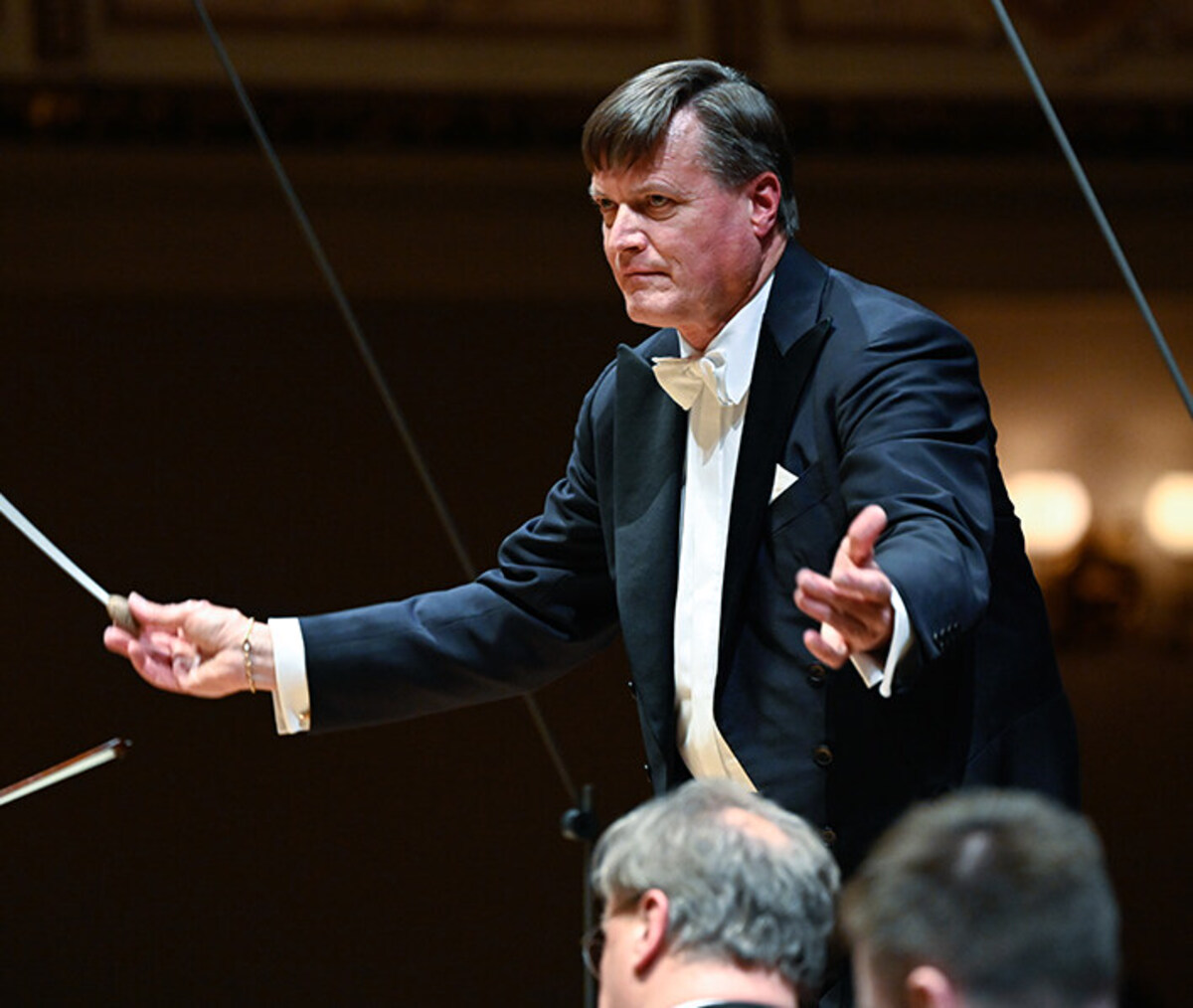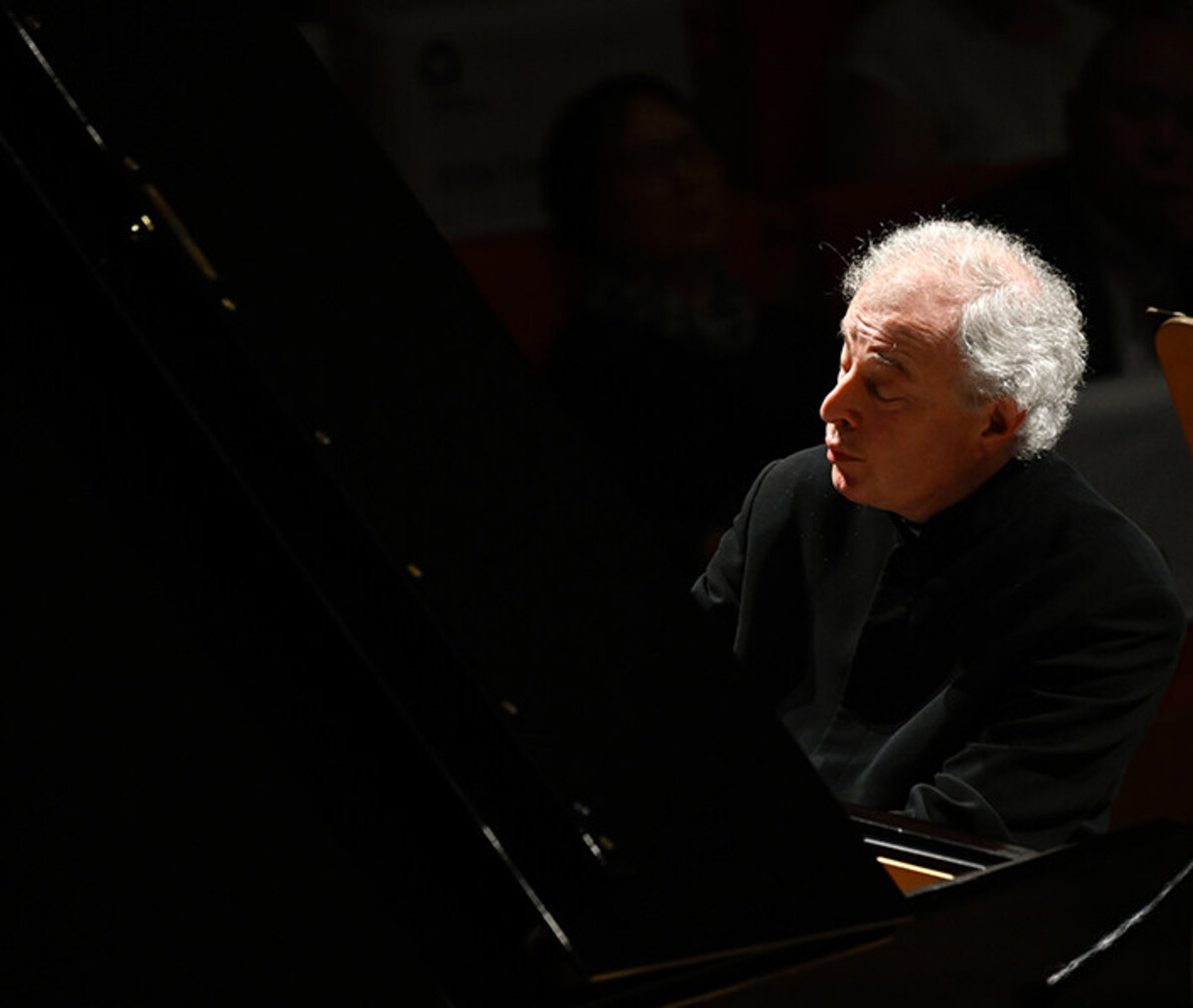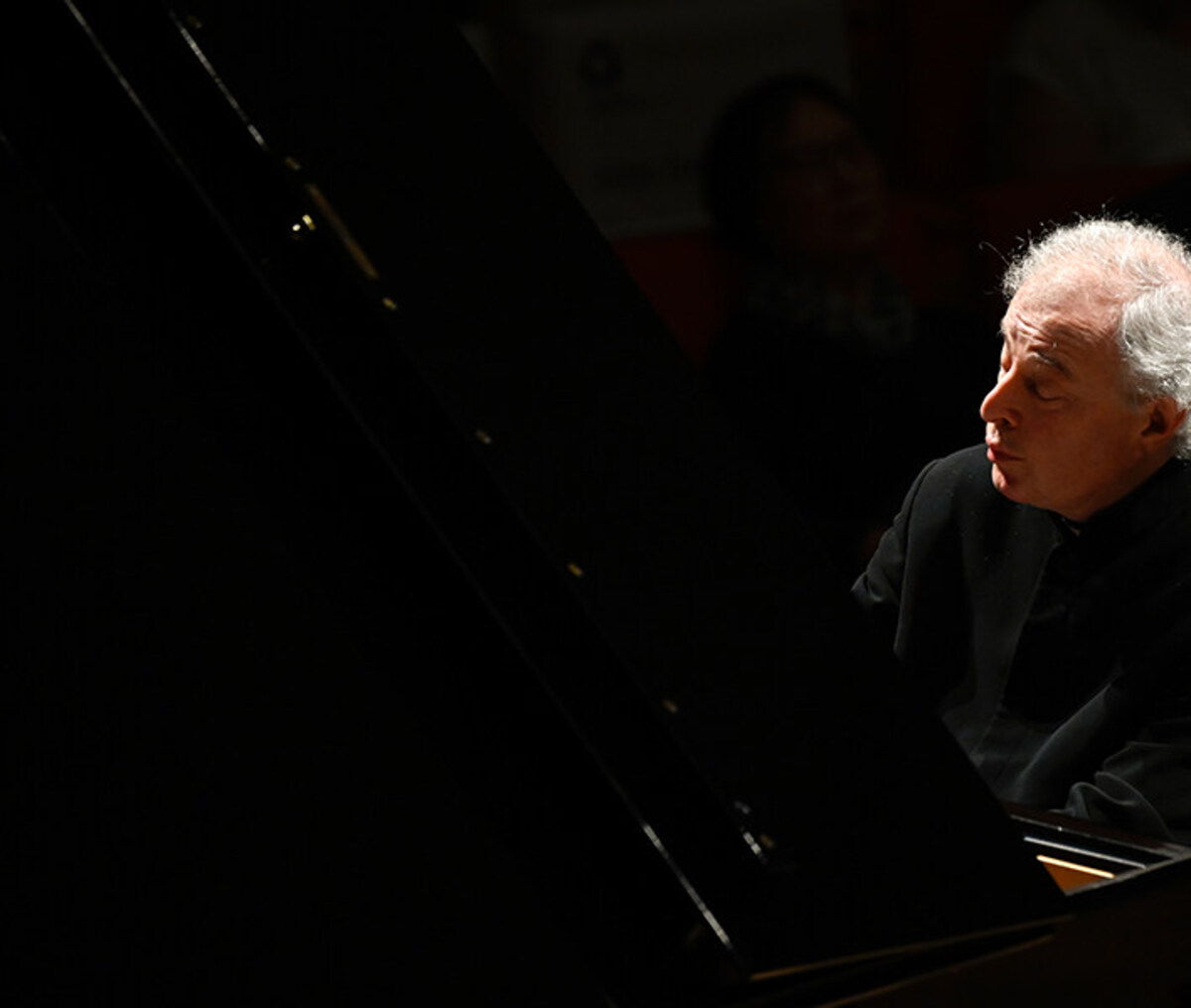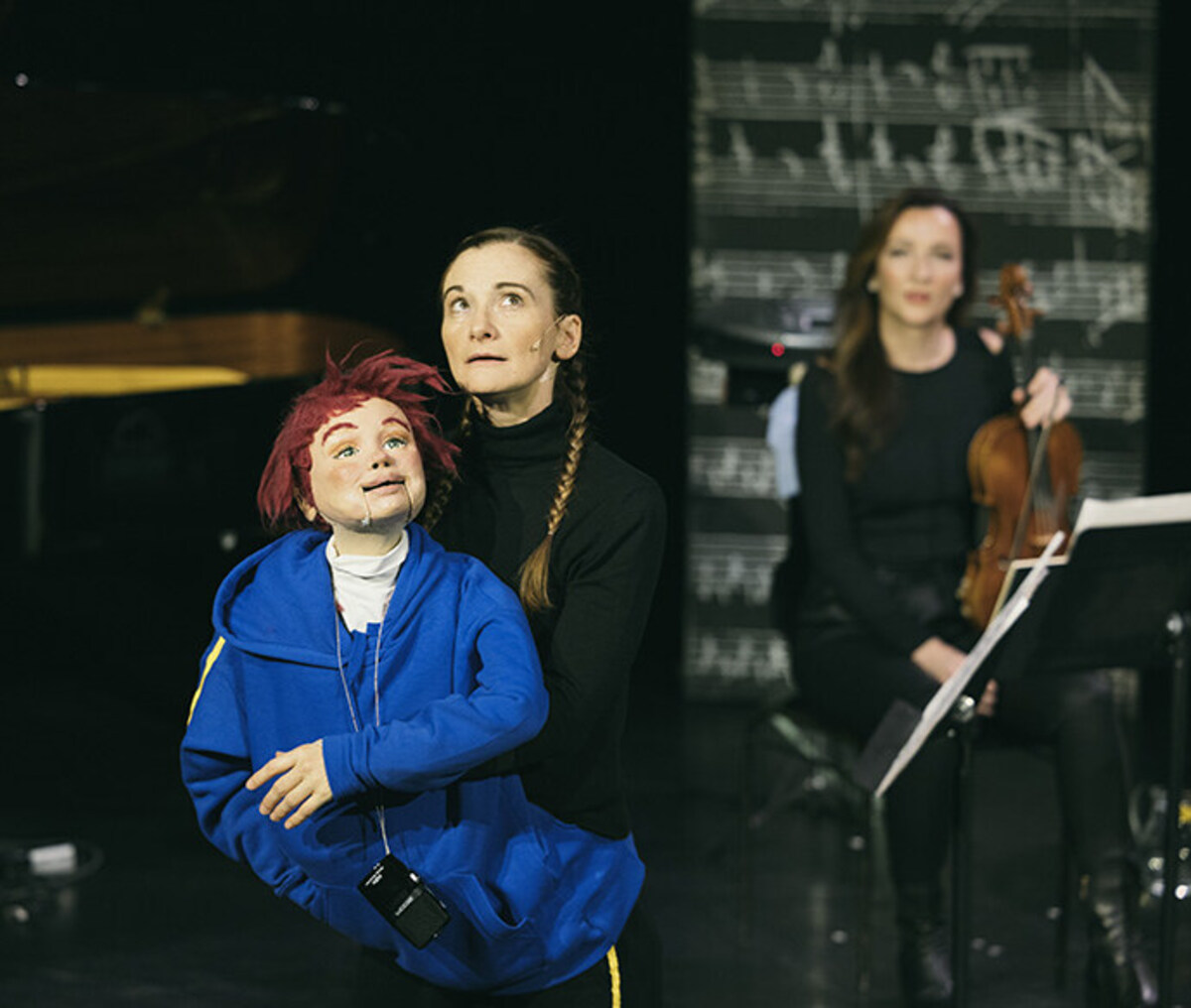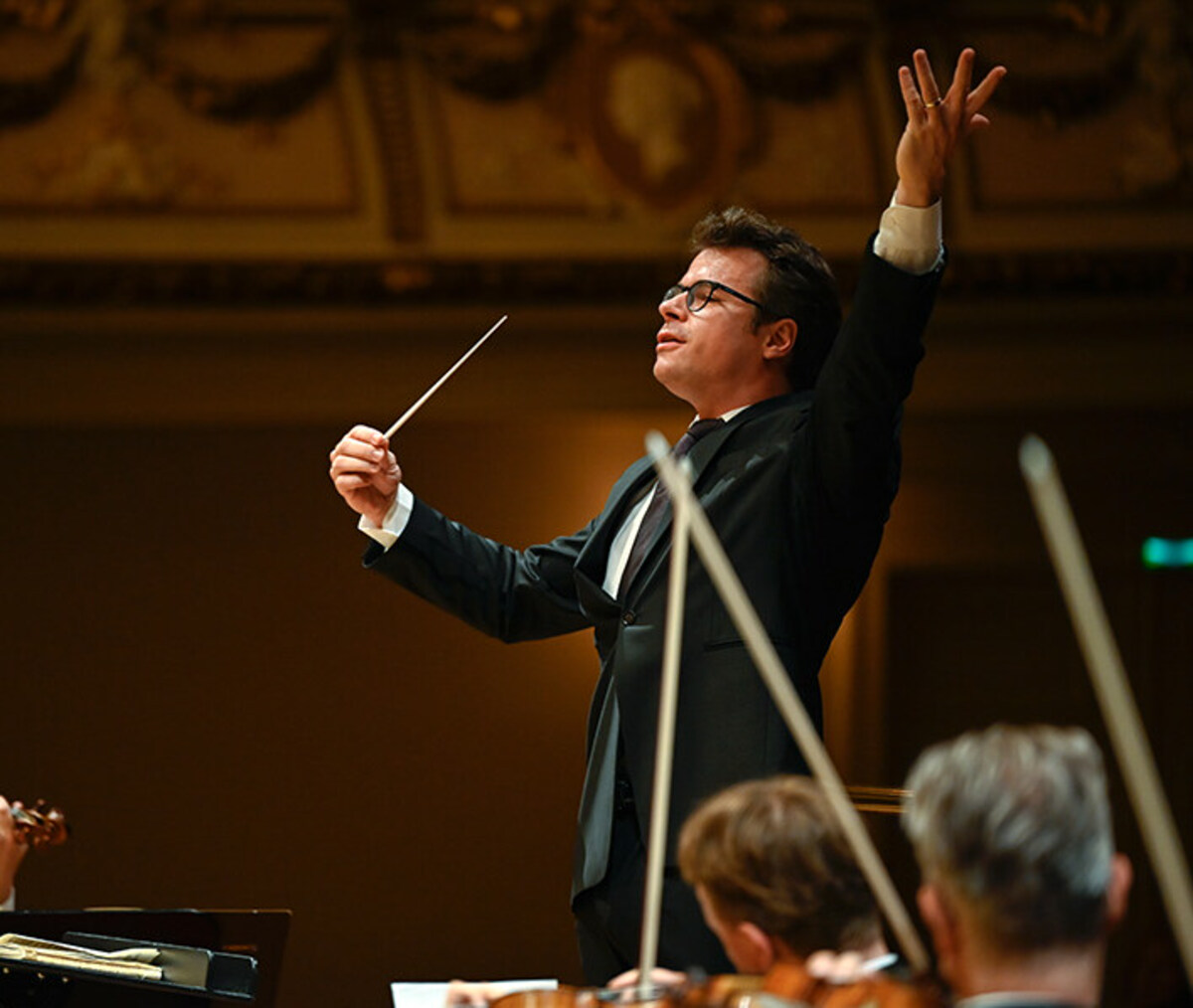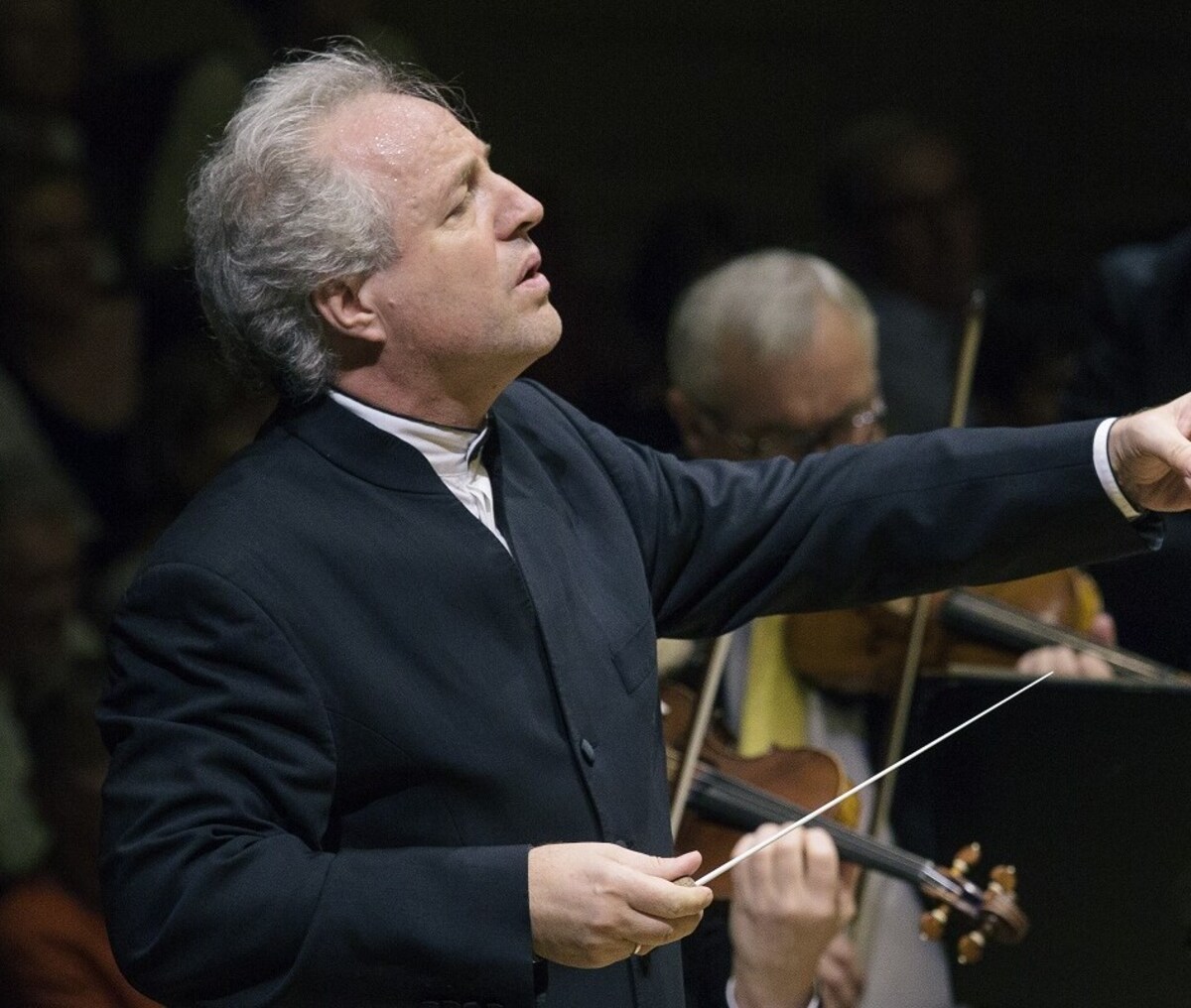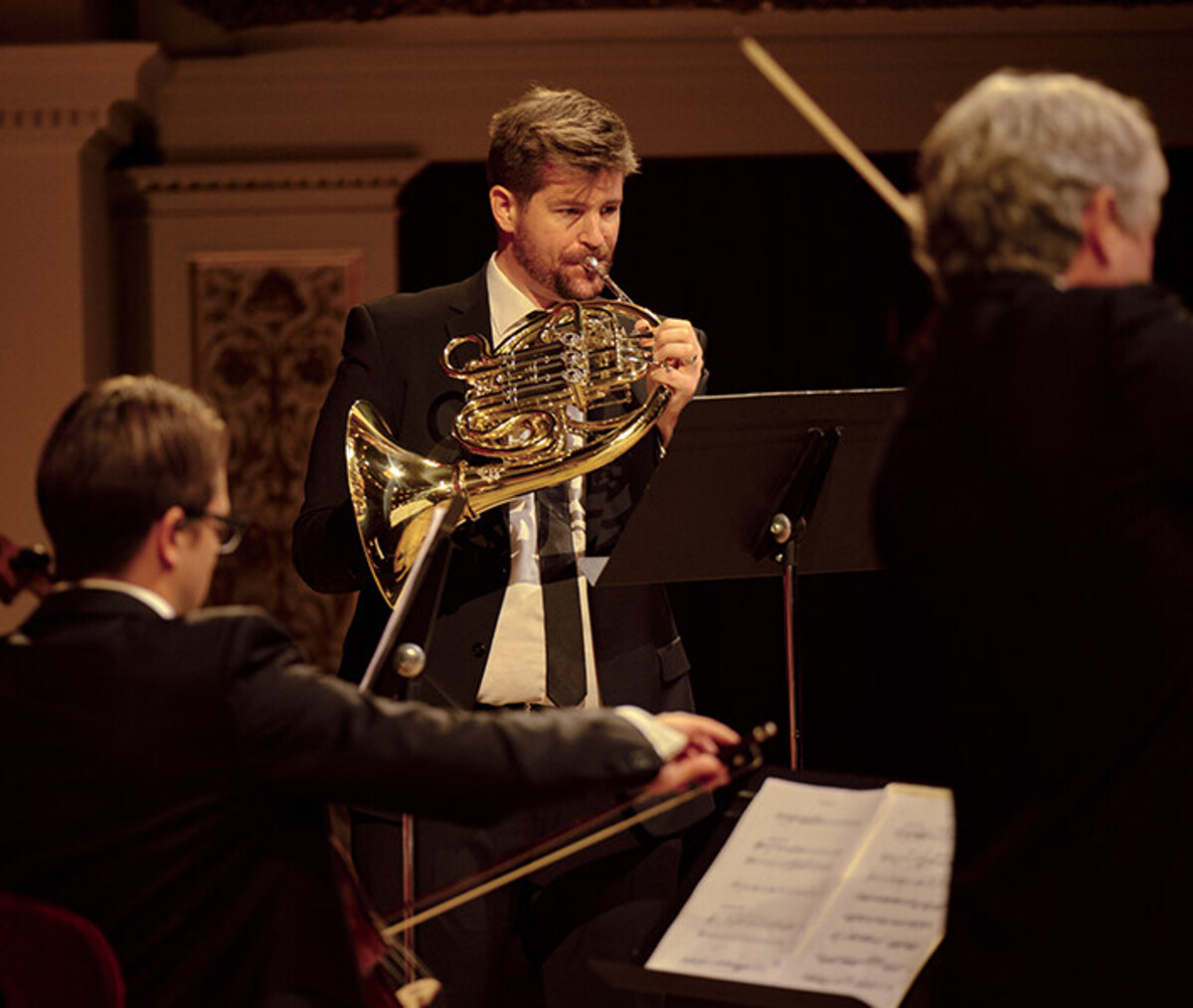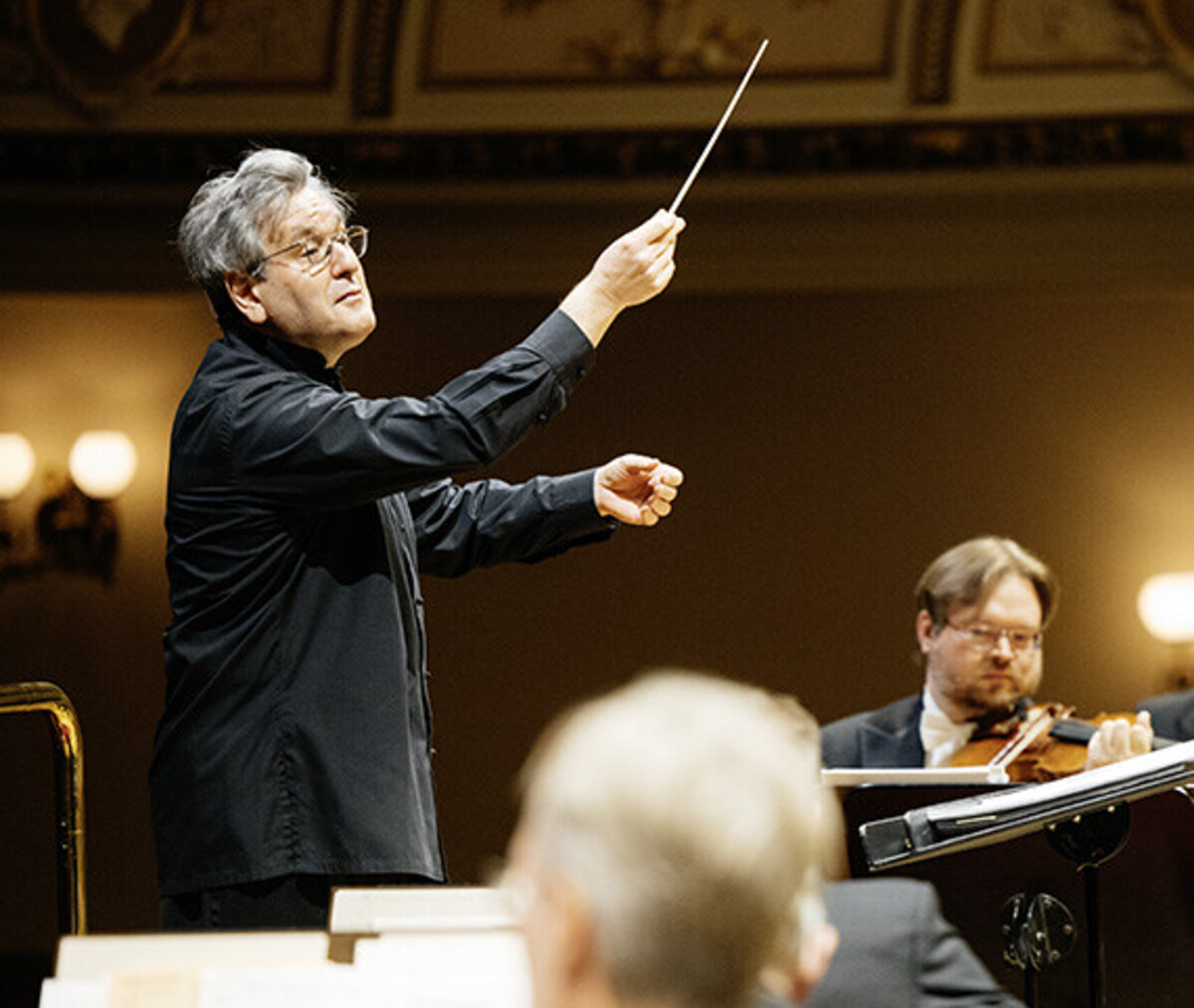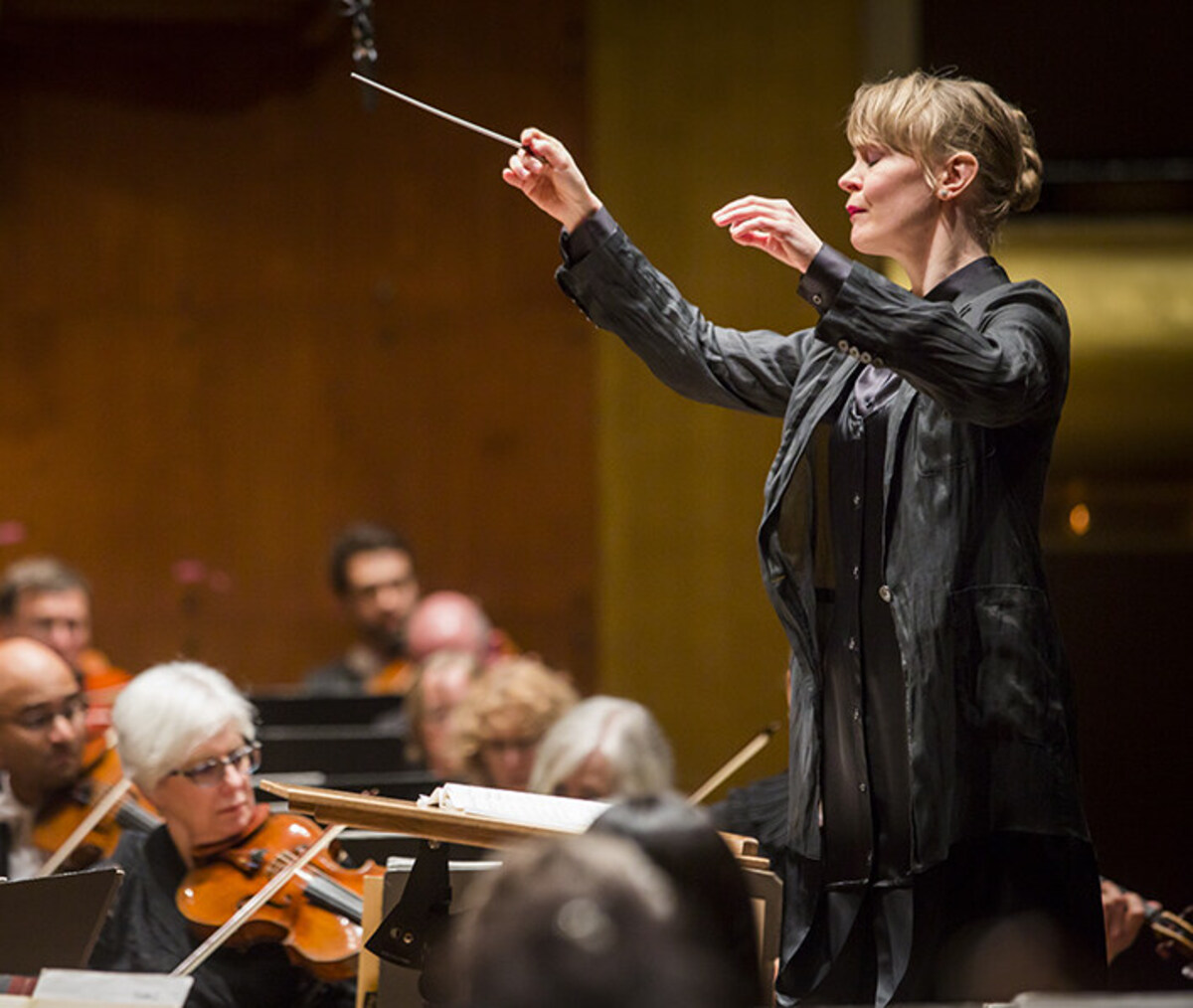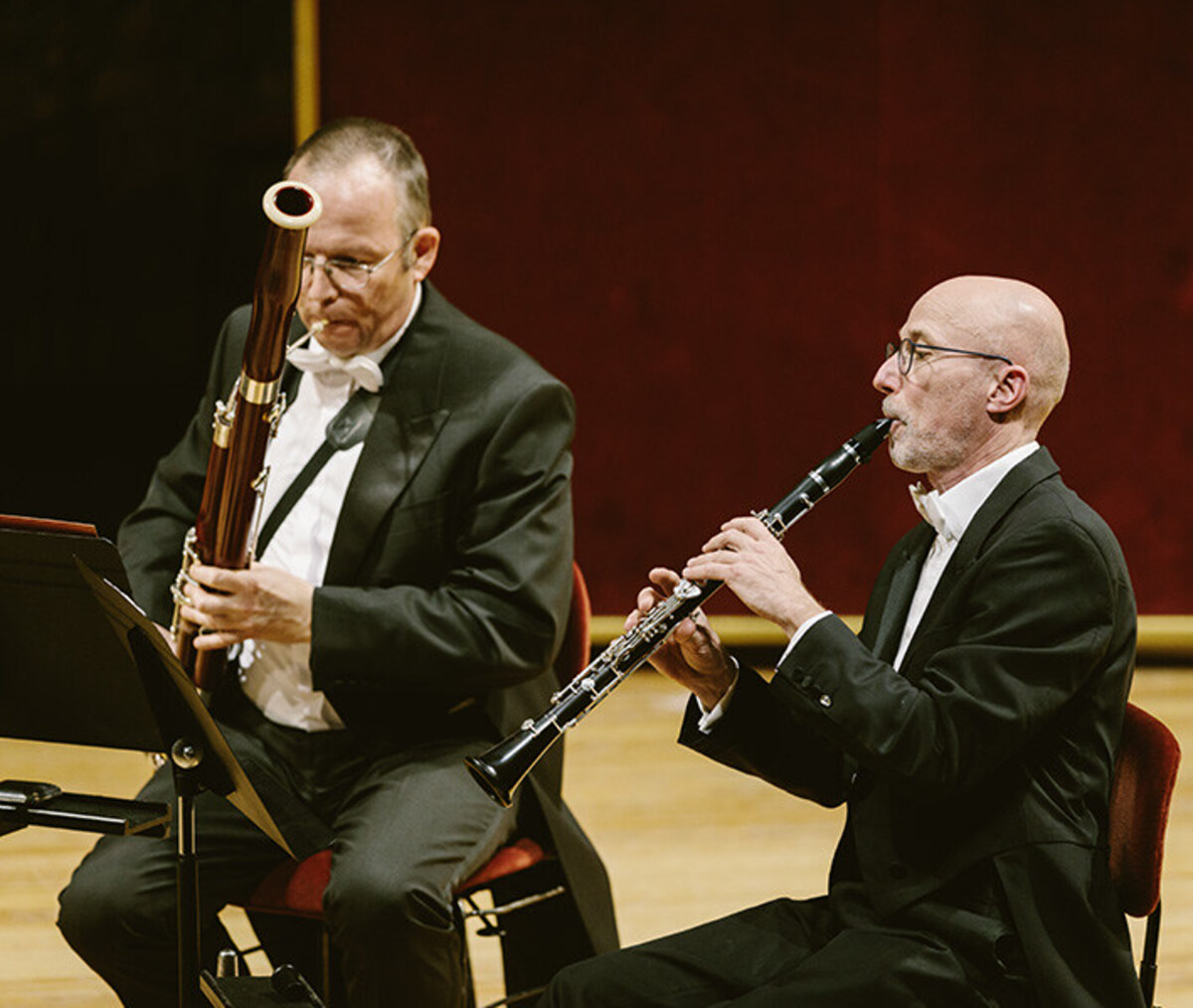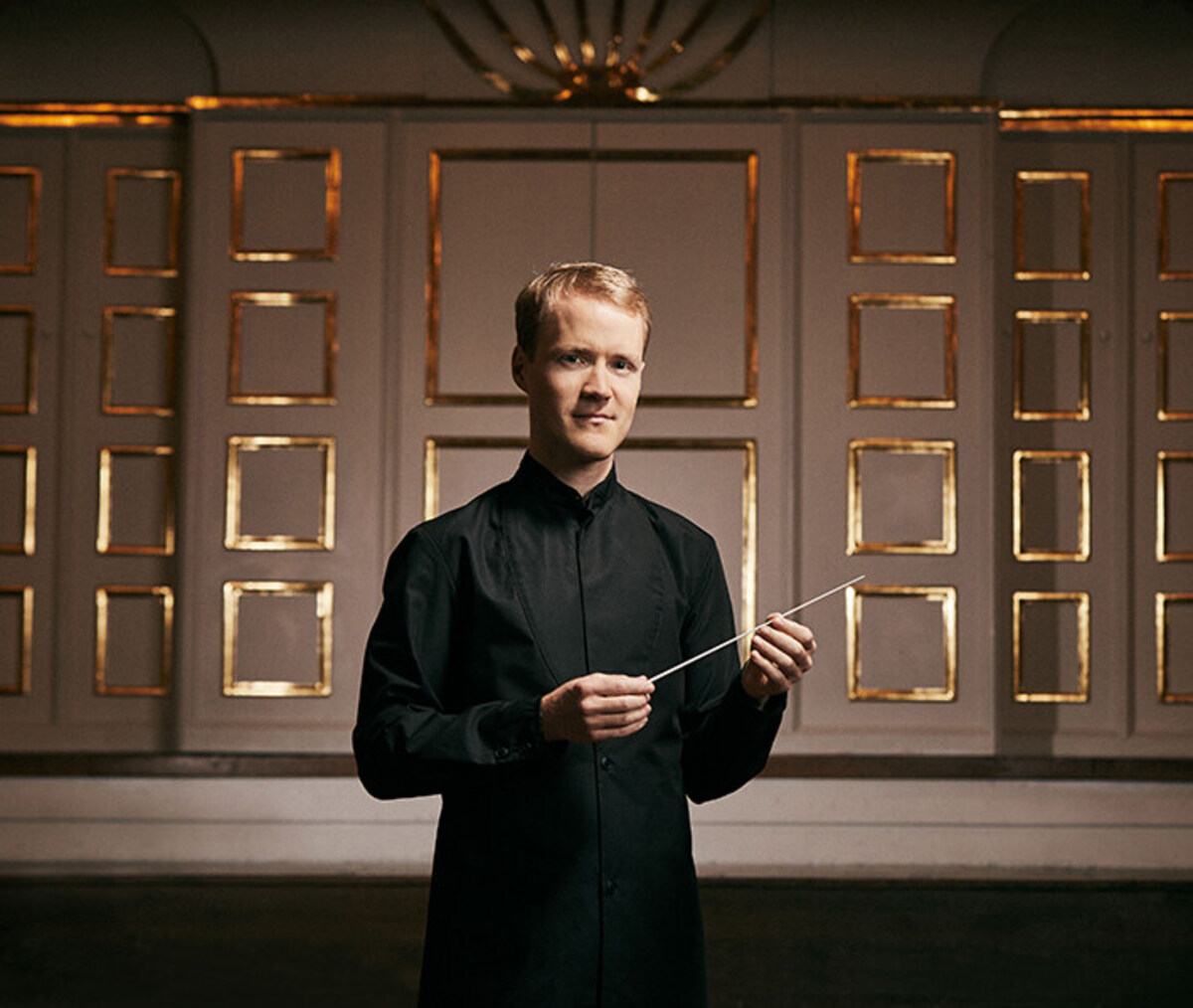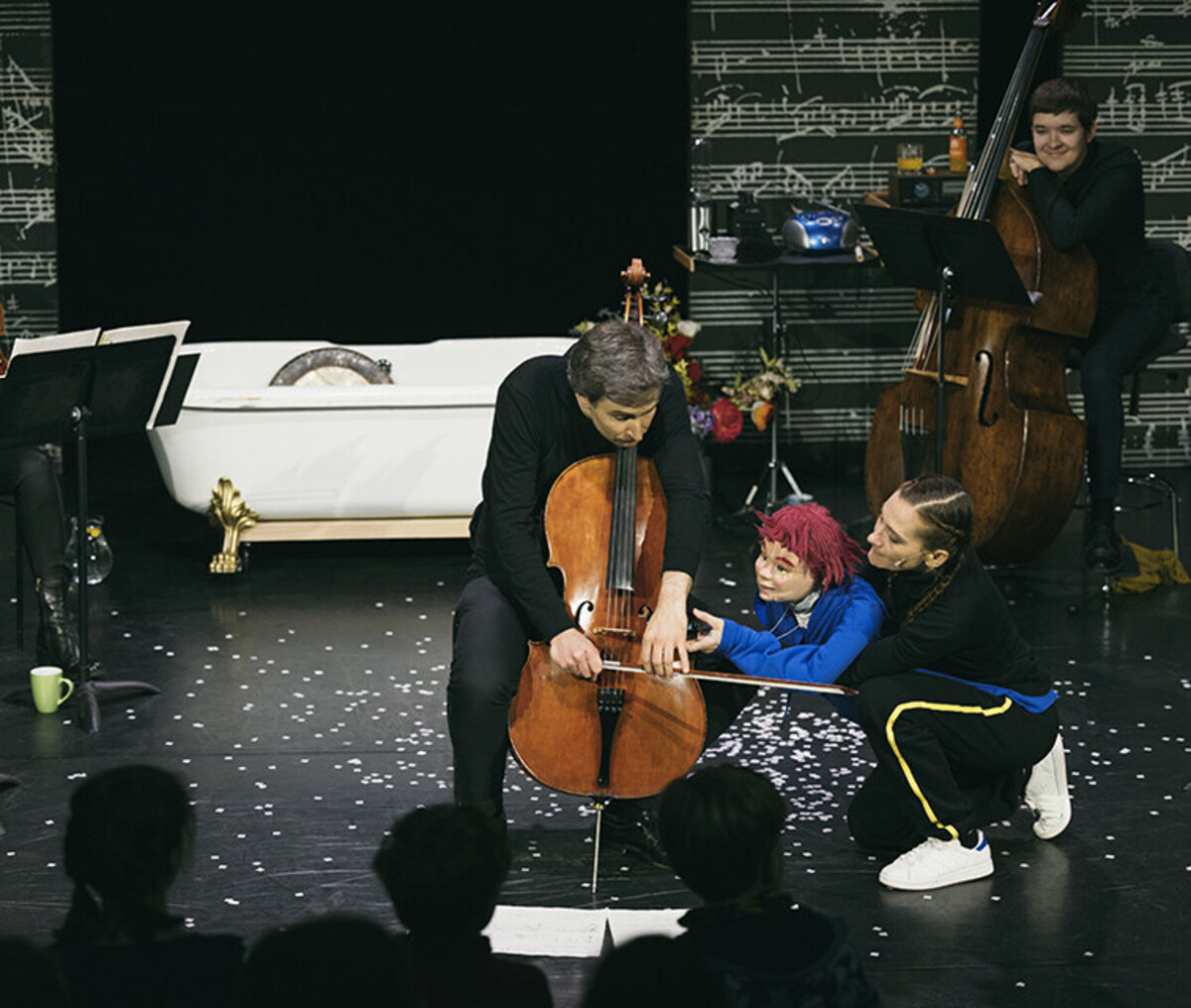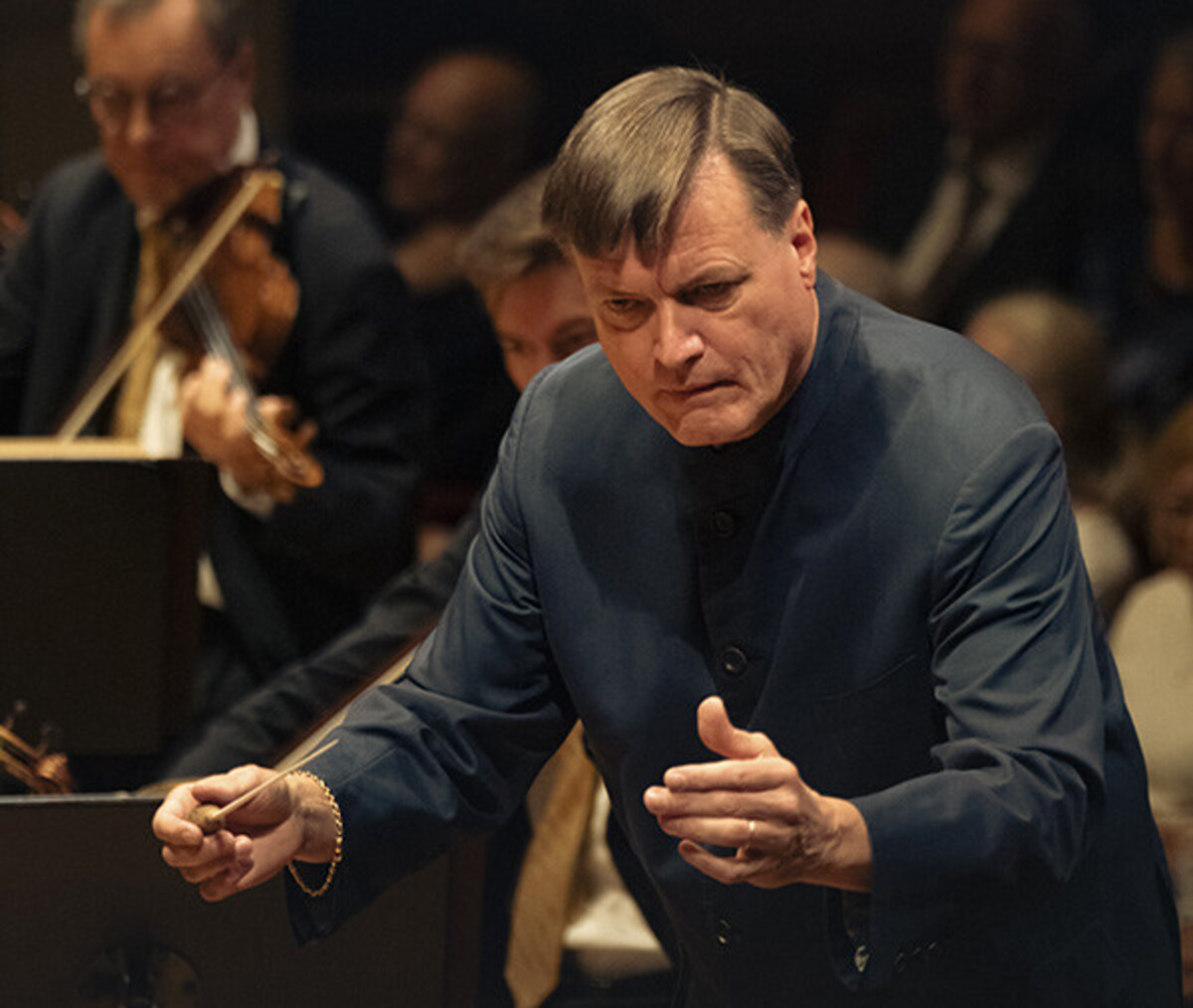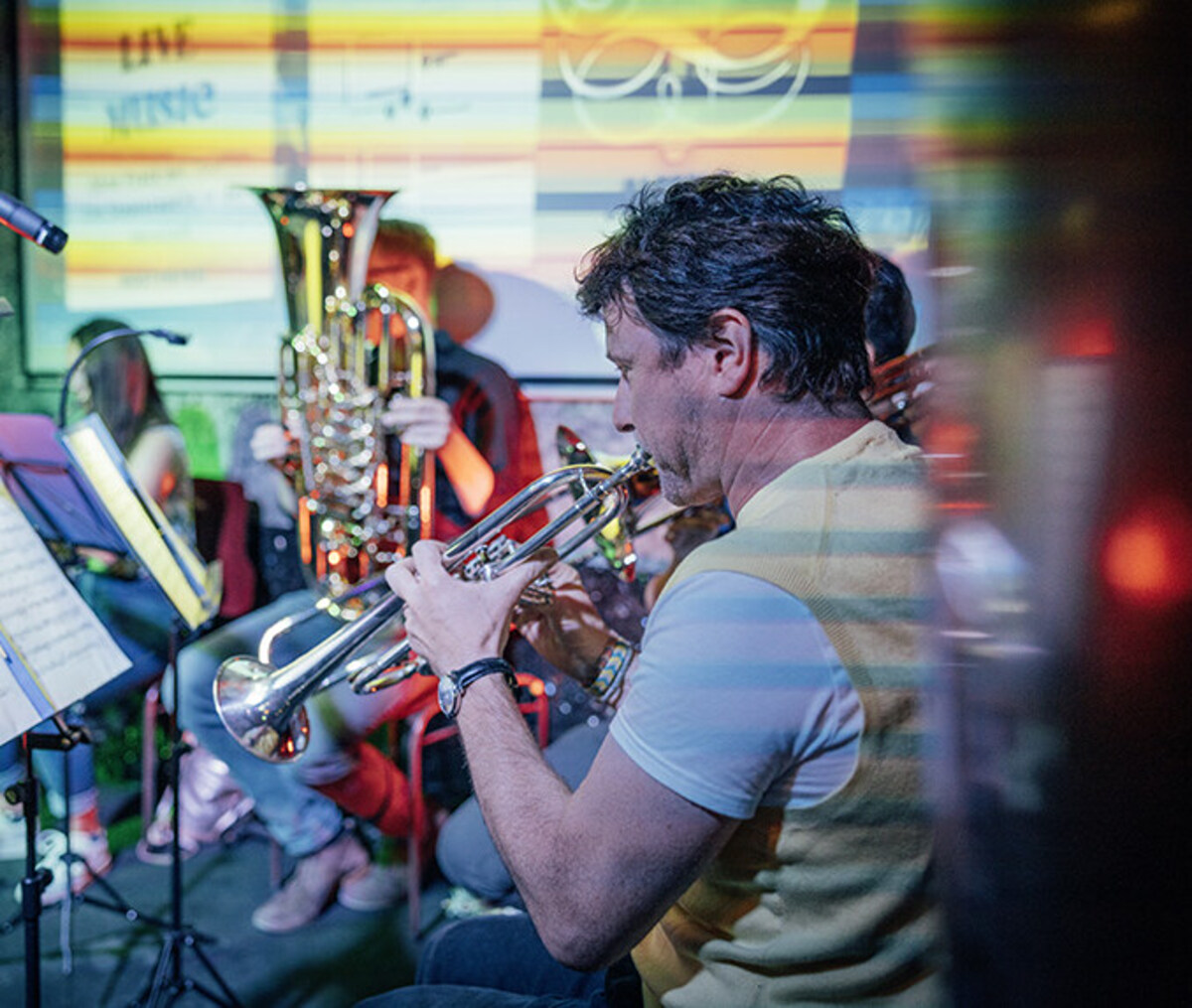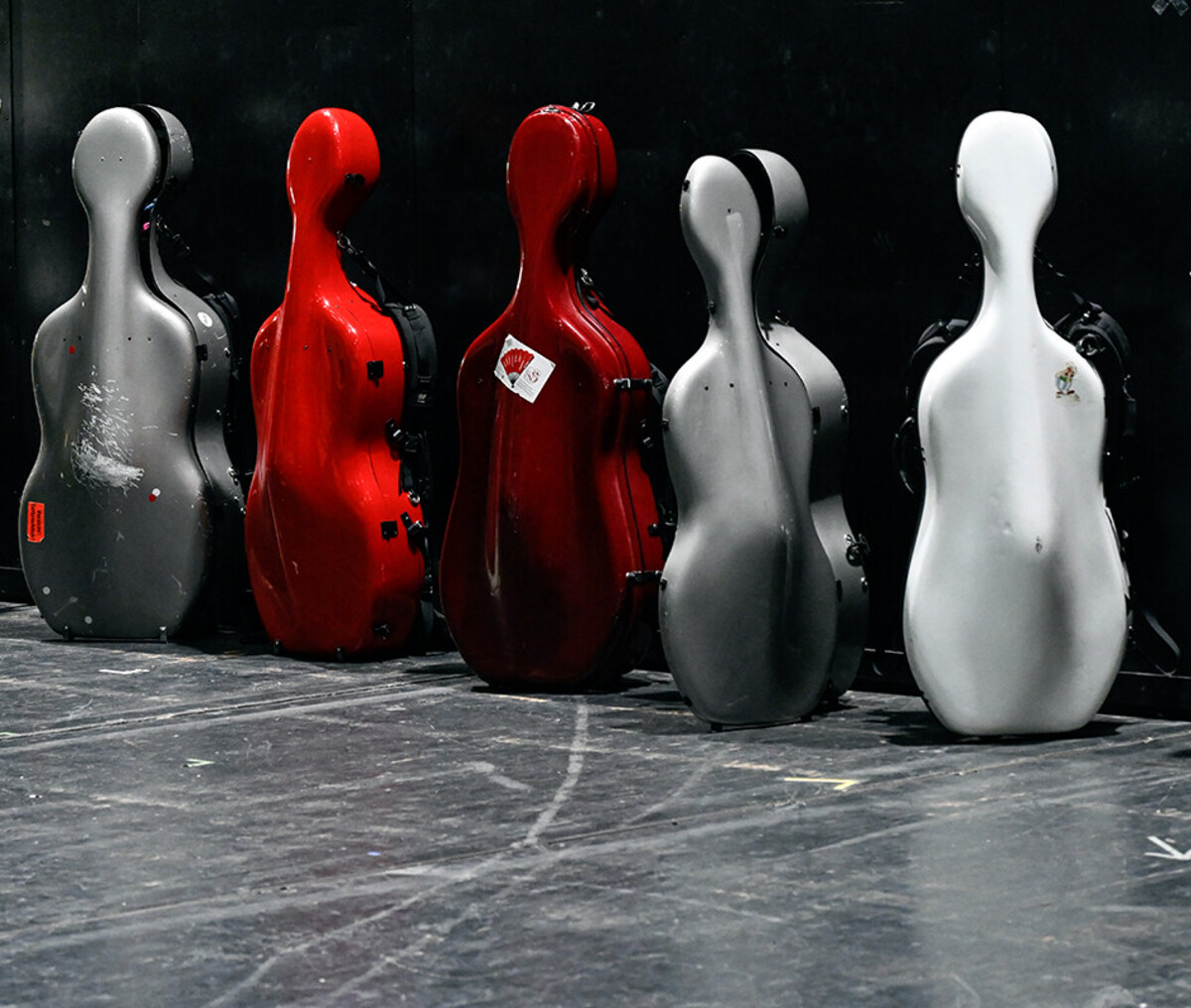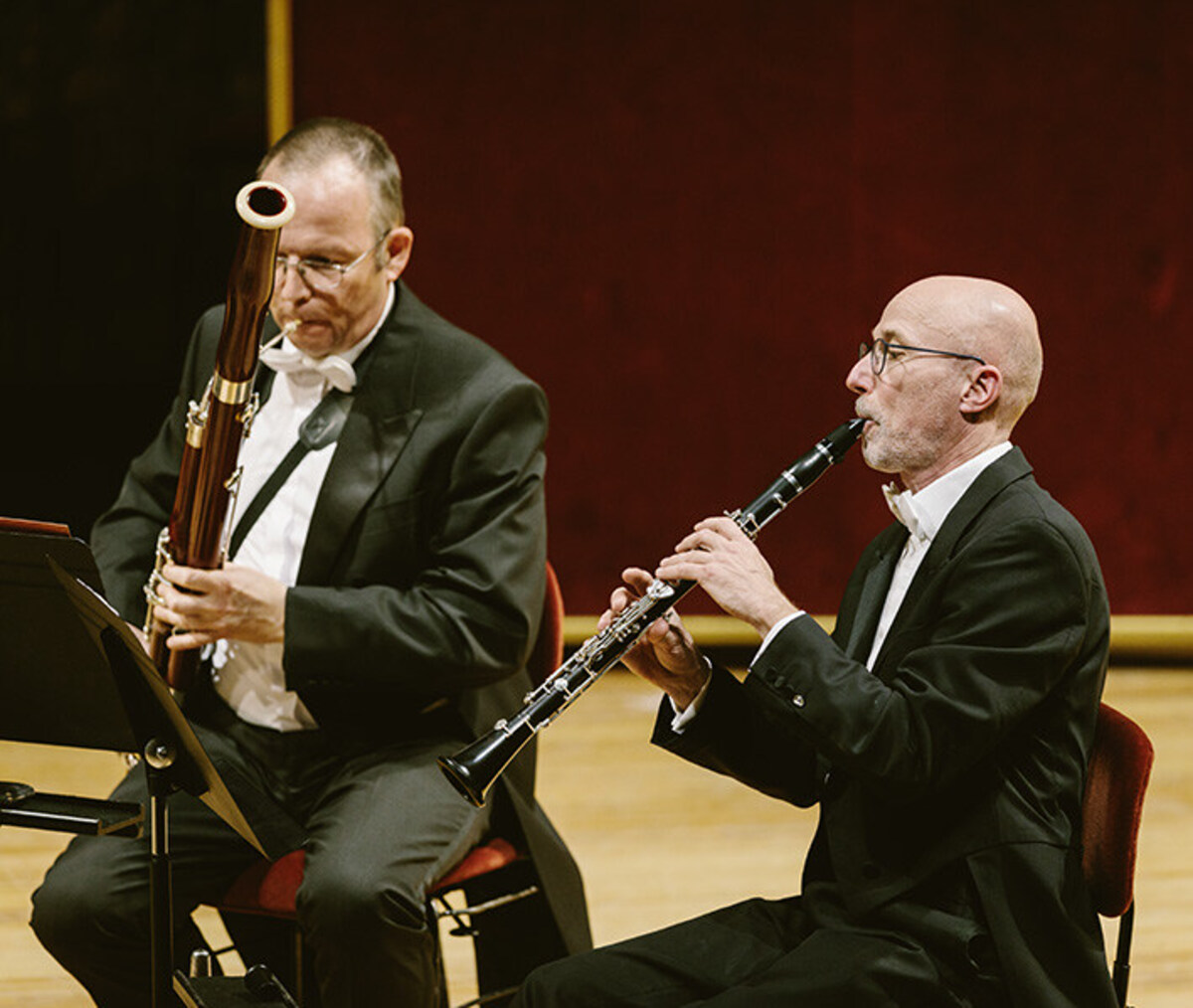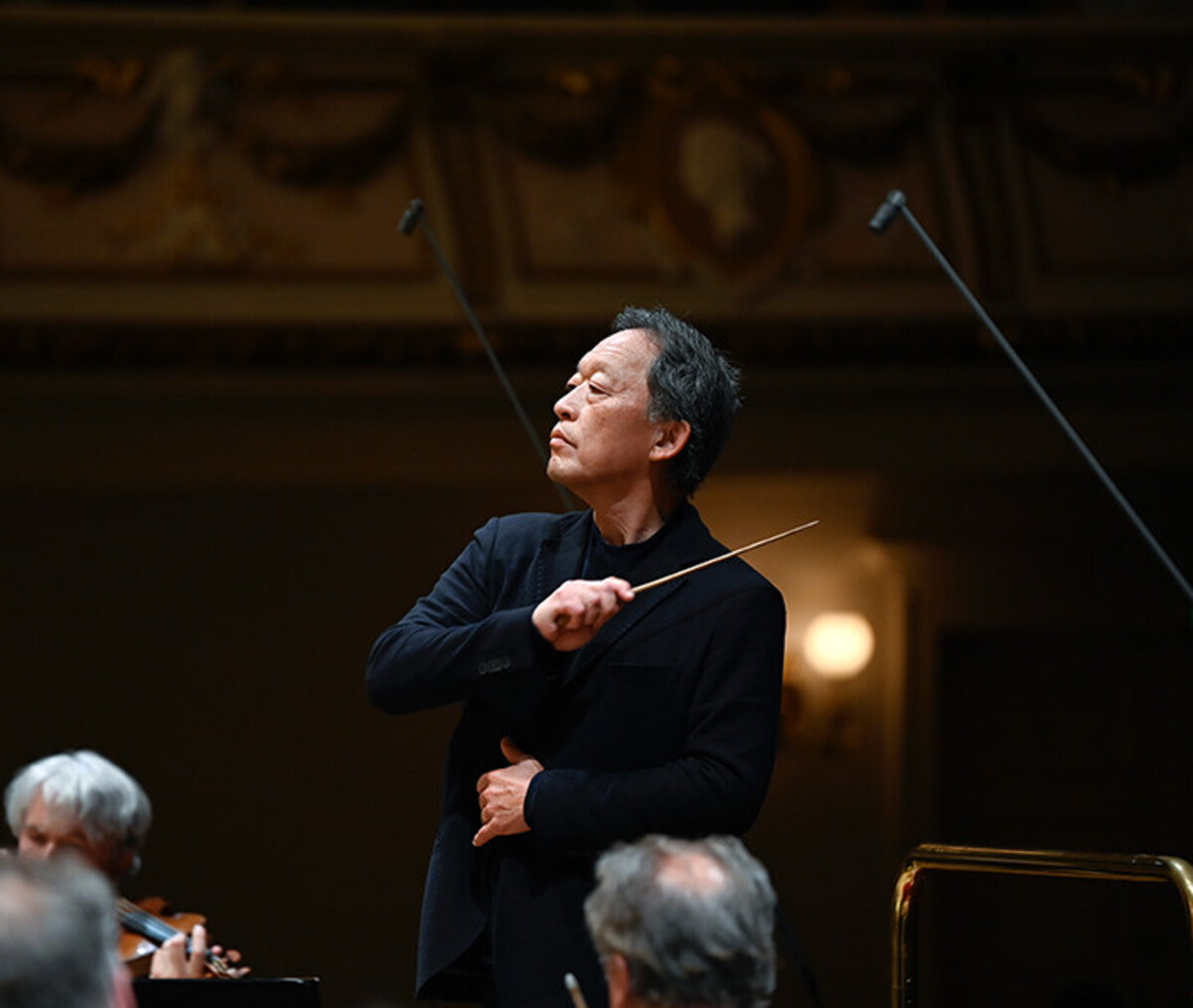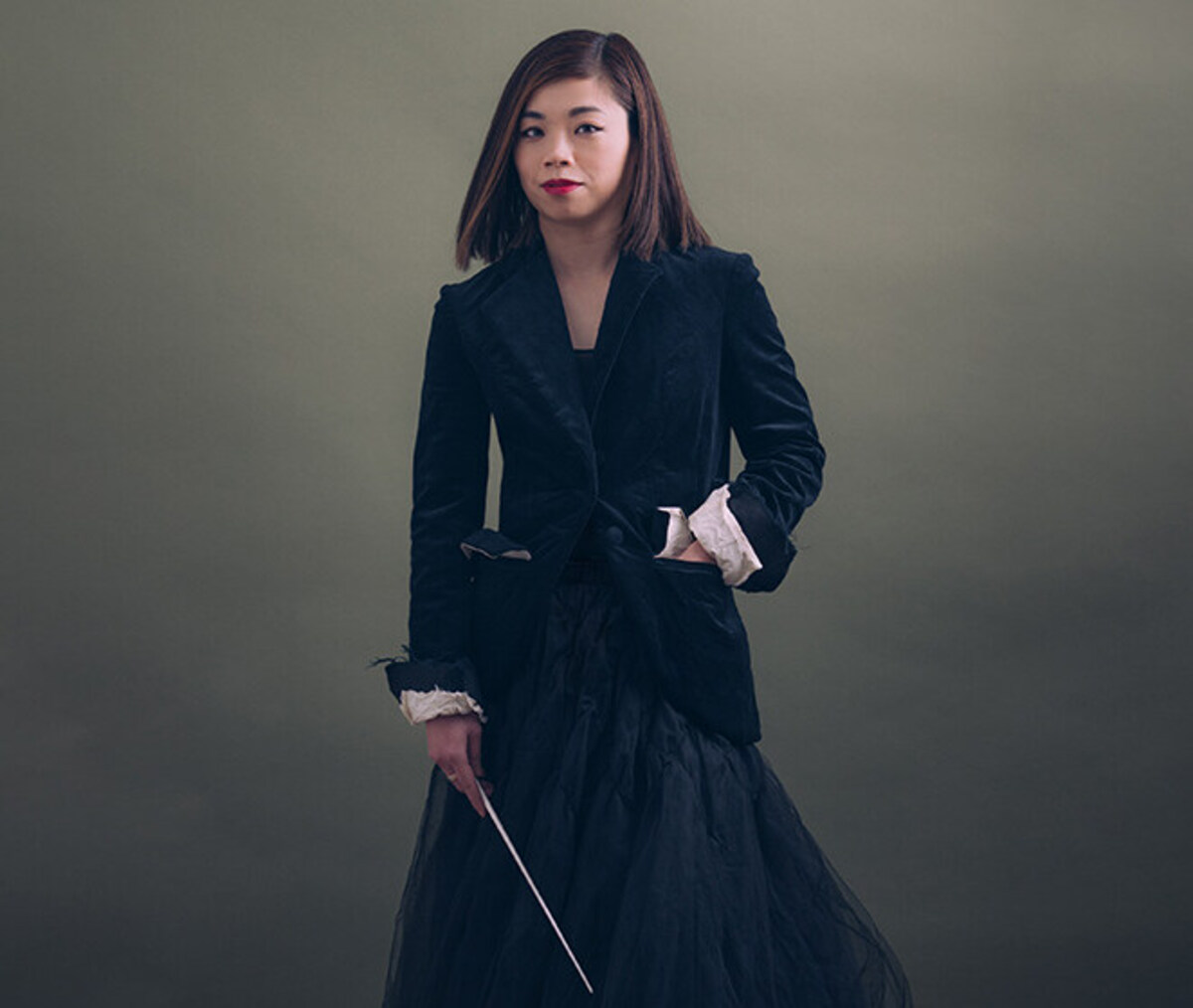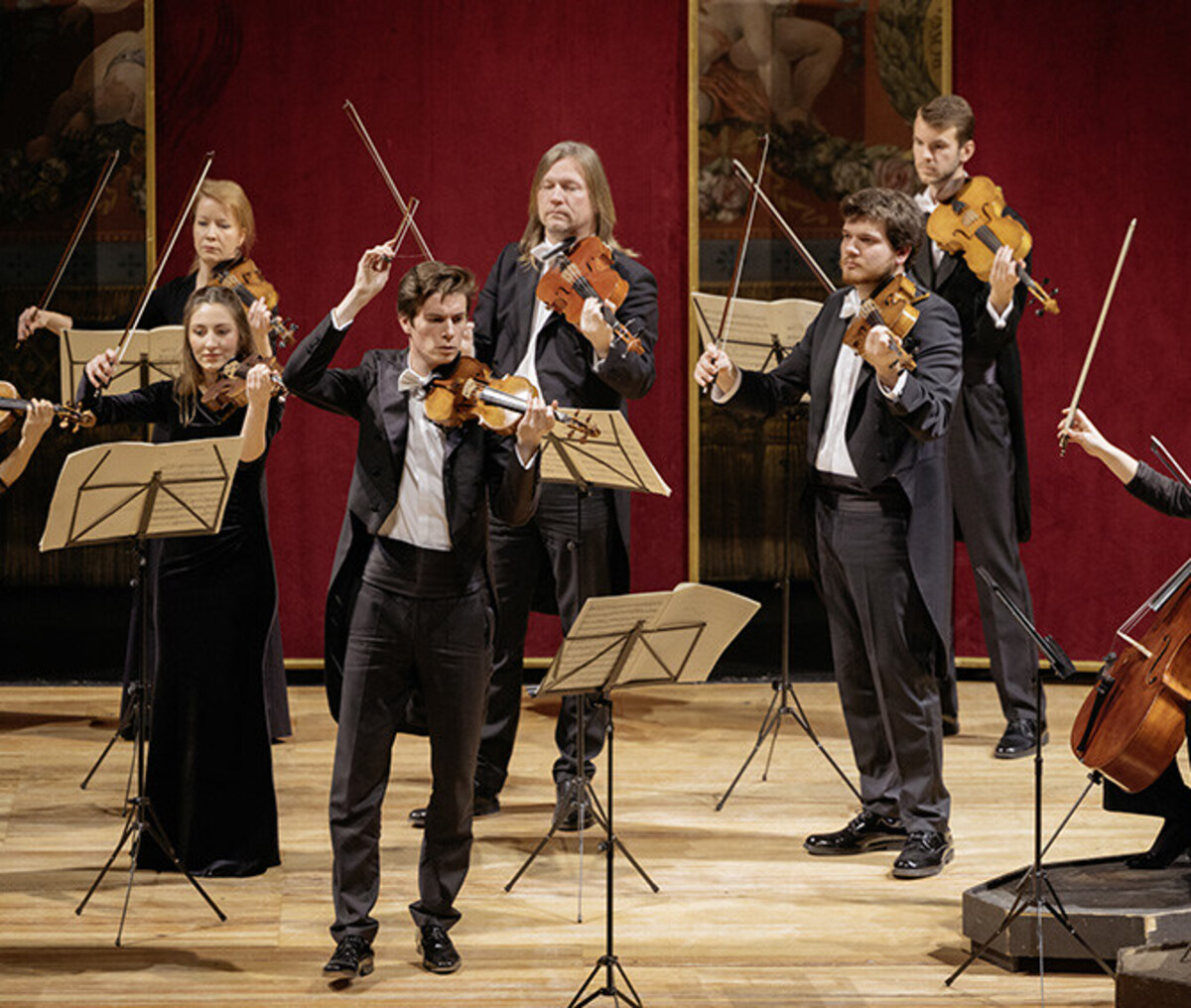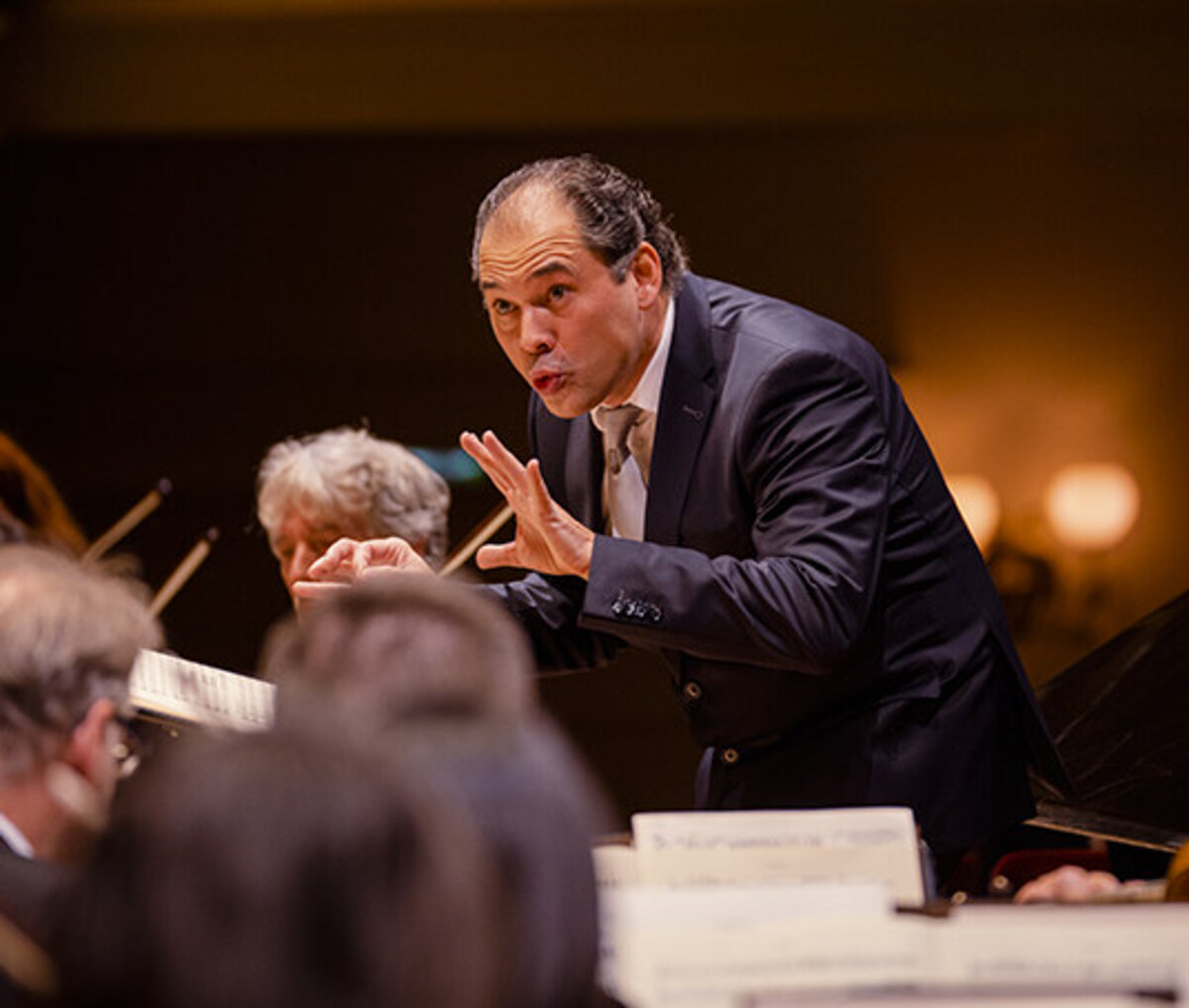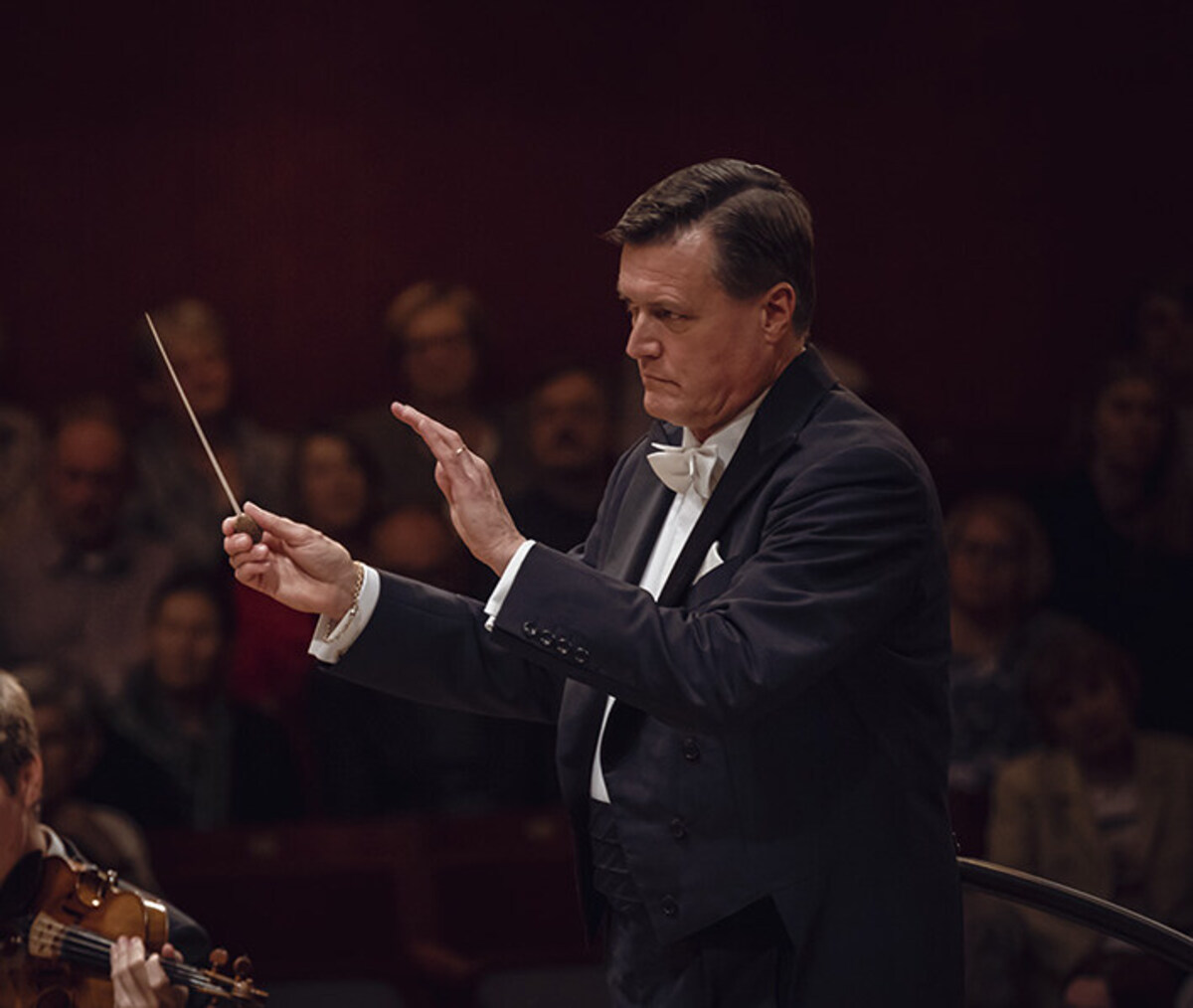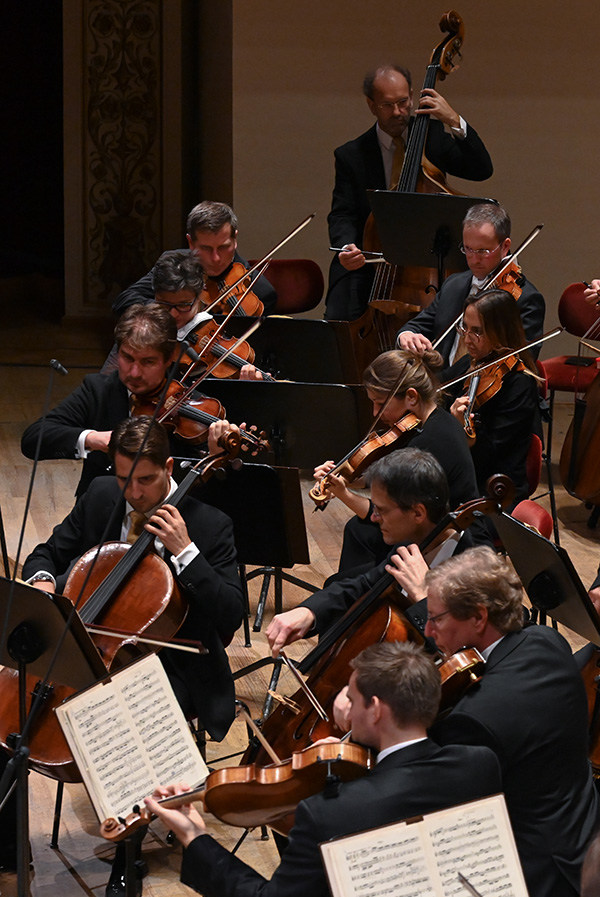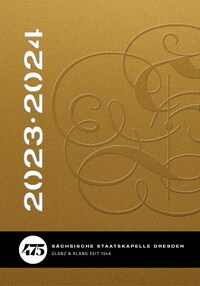Sächsische Staatskapelle Dresden
Beloved everywhere – at home in the Semperoper.
Portrait
One of the world’s top orchestras, the Staatskapelle Dresden and its Principal Conductor Christian Thielemann appear more than 260 times in opera, ballet or concert performances in the Semperoper.
One of the oldest orchestras in the world, the Staatskapelle Dresden is steeped in tradition. Prominent directors who have left their mark on this one-time court orchestra include Heinrich Schütz, Johann Adolf Hasse, Carl Maria von Weber and Richard Wagner, who called the orchestra his »miraculous harp«. Over the last 100 years the list of principal conductors has included Fritz Busch, Karl Böhm, Joseph Keilberth, Rudolf Kempe, Kurt Sanderling, Herbert Blomstedt and Giuseppe Sinopoli. More recently, the Kapelle has been led by Bernard Haitink (2002–2004) and Fabio Luisi (2007–2010). Christian Thielemann has been Principal Conductor of the Staatskapelle Dresden since the 2012/13 season, from which time Myung-Whun Chung has been Principal Guest Conductor. In May 2016 the orchestra appointed Herbert Blomstedt its Conductor Laureate. Numerous legendary recordings confirm the prestige of the Staatskapelle as a concert and opera orchestra. In 2007 the Staatskapelle became the first – and so far only – orchestra to be awarded the »European Prize for the Preservation of the World’s Musical Heritage«.
2023/24
The future is dear to our heart
In 2023/24, the Staatskapelle will intensify its work with young musicians
The Staatskapelle and its Principal Conductor, Christian Thielemann, are particularly committed to nurturing young musicians in the 2023/24 season. Our partnership of more than ten years with the Gustav Mahler Youth Orchestra (many of whose members have later joined the ranks of the Staatskapelle) will be significantly expanded in addition to the now traditional concert to launch the new season.
Founded in 1986 by Claudio Abbado, the orchestra brings together a group of outstanding international talents, who are later courted by the world’s top orchestras. Alongside the opening concert on 22 August 2023, the GMYO will perform in the new season in Richard Strauss’s »Die Frau ohne Schatten« and – also under the baton of Christian Thielemann – contribute to the events marking his departure as Principal Conductor of the Staatskapelle, in particular at the concert featuring a pinnacle of the symphonic repertoire: Gustav Mahler’s Eighth Symphony (12th Symphony Concert on 7, 8 and 9 July 2024). The next generation of orchestral musicians is also being cultivated within the ranks of the Staatskapelle itself.
Founded 100 years ago by former Generalmusikdirektor Fritz Busch, the orchestra school, which in 2011 was renamed the Giuseppe Sinopoli Academy, gives young musicians the opportunity to be personally mentored by experienced Kapelle players for a two-year training period. Ideally, this will lead to a permanent position in the orchestra, thereby ensuring that the unique Staatskapelle sound and performance culture are maintained.
While these partnerships are geared towards professional orchestral work, the project »Musaik – Grenzenlos musizieren e.V.« from the Dresden district of Prohlis is a matter close to the Staatskapelle’s heart. The first joint concert events, for example last year’s »Carnival of the Animals« by Camille Saint-Saëns, were followed in the spring of 2023 by a »Dance through the Centuries«, aimed at deepening and securing the ties between the orchestra and Musaik for the years to come. And so it made perfect sense to donate the 50,000 euros received by the Staatskapelle as part of the Herbert von Karajan Prize, awarded for their decade-long contribution to the Salzburg Easter Festival, to this community project. The money funds free instrument lessons and cultural events for local children and young people from a wide range of social and cultural backgrounds.
In addition to the orchestra’s own interests in securing the next generation of Kapelle members, it is essential for our wider society that, by encouraging the musicians of tomorrow, the Staatskapelle also opens the minds of young people to art and culture. Therefore, it was not a difficult decision but rather a logical step for the orchestra to place the future at the heart of the 2023/24 season.
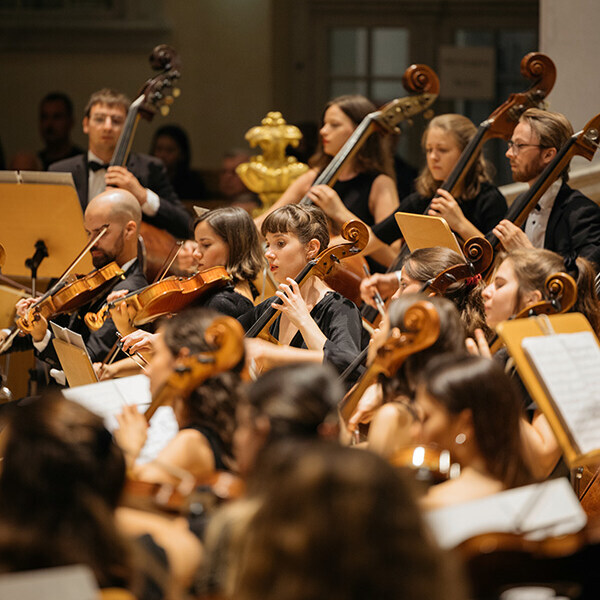
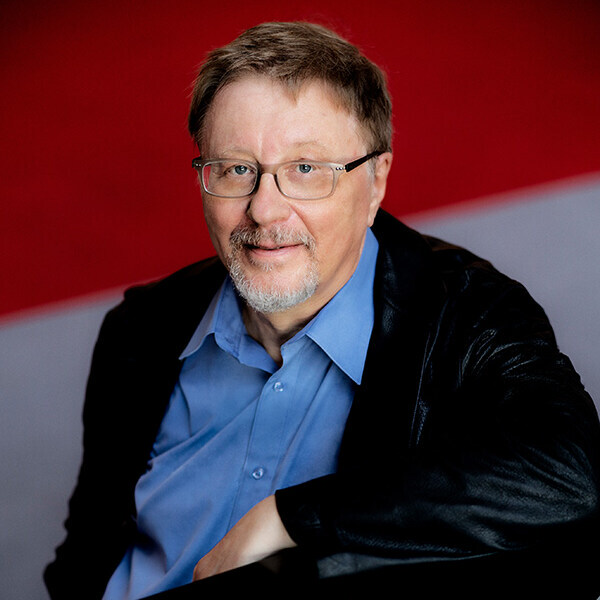
Georg Friedrich Haas
Composer-In-Residence 2023/24
There is probably no prejudice about contemporary music more persistent than that compositional innovation does not go hand in hand with beauty of sound and emotional intensity. Yet the work of Georg Friedrich Haas, the Staatskapelle’s Composer-in-Residence for the 2023/24 jubilee season, consistently proves the opposite: this is music that touches and beguiles the listener, not despite but precisely because of its unusual sounds and processes.
Born in Graz in 1953, the composer first made a name for himself in the 1990s with his systematic exploration of microtones, i.e. intervals smaller than a semitone, which therefore cannot be reproduced on the piano. But neither then nor today can Haas’s work be reduced to the catchword of microtonality. Not only do many of his pieces dispense entirely with microtonal elements; for him, perfect, quarter-tone or sixth-tone intervals are never an end in themselves, not some impertinent compositional exercise, but rather a means of expression. Thus, for example, the iridescent overtone chords that gradually emerge from the swirling chromatic sonic planes in the one-hour ensemble work »in vain« exude a suggestive, almost utopian power. The listener is immediately captivated – a state that is intensified by the composer’s instruction that parts of the work be played in absolute darkness.
The depth of expression and sensuality that his music draws from the interior life of sounds have made Georg Friedrich Haas one of the most important composers of our time. His oeuvre, which features several commissions from leading orchestras, encompasses eight stage works, numerous orchestral and ensemble pieces and no fewer than eleven string quartets, along with many other works. He has enjoyed great successes such as with his opera »Morgen und Abend«, based on a libretto by Jan Fosse, or the 2010 work »limited approximations« for six pianos (tuned to twelfth-tone intervals) and orchestra. Georg Friedrich Haas has received several awards for his pioneering compositions, including the Austrian State Prize for Music and the Salzburg Music Prize. Since 2013 he has held a professorship in composition at New York’s Columbia University. His autobiography »Durch vergiftete Zeiten« was published in 2022.
Georg Friedrich Haas will contribute two world premieres to the Staatskapelle’s jubilee season: a new work for bass clarinet, cello and percussion to be performed at the 2nd Chamber Music Evening; and a new orchestral work at the 9th Symphony Concert, conducted by Susanna Mälkki, here making her Staatskapelle debut. Mälkki has previously conducted the world premiere of Haas’s »concerto grosso« No. 1 for four alphorns and orchestra. And the Staatskapelle will present »in vain«, one of the most acclaimed classical works of the 21st century, at a non-subscription concert in the Festspielhaus Hellerau.
Concerts with works by Georg Friedrich Haas
2nd Chamber Music Evening
9 October 2023, 8 p.m.
Georg Friedrich Haas Neues Werk für Bassklarinette, Violoncello und Schlagzeug (World premiere)
Special Concert with the Composer-In-Residence
2 February 2024, 8 p.m.
Georg Friedrich Haas »in vain« for 24 instruments
4th Chamber Music Evening
8 February 2024, 8 p.m.
Georg Friedrich Haas »tria ex uno«. Sextett nach Josquin Desprez
9th Symphony Concert
14 April 2024, 11 a.m.; 15 & 16 April 2024, 7 p.m.
Georg Friedrich Haas Neues Werk für Orchester (World premiere)
Impressions
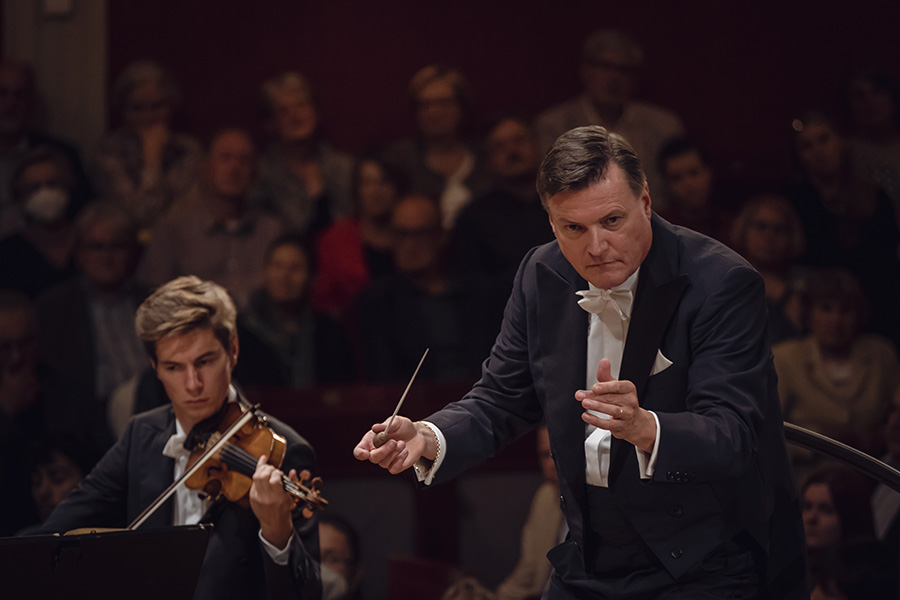
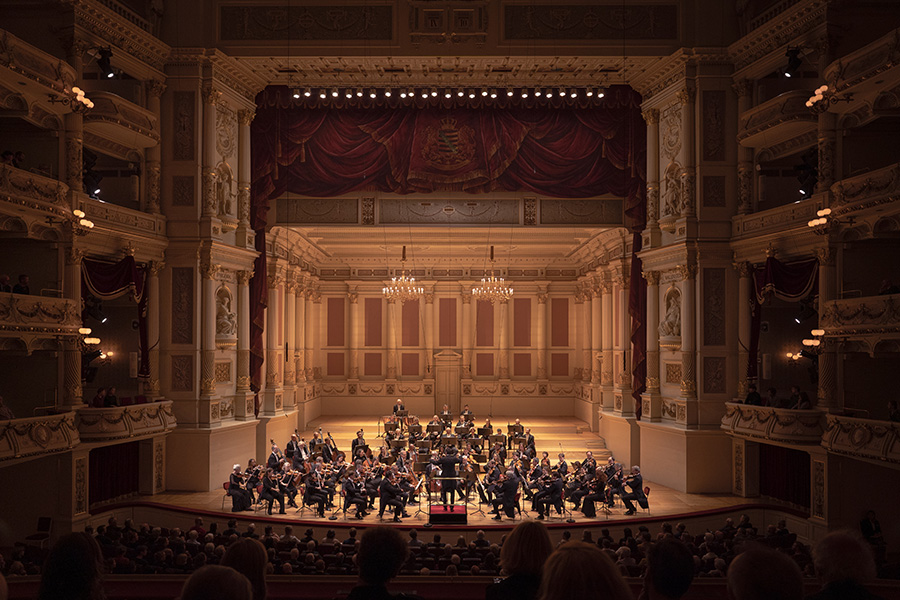
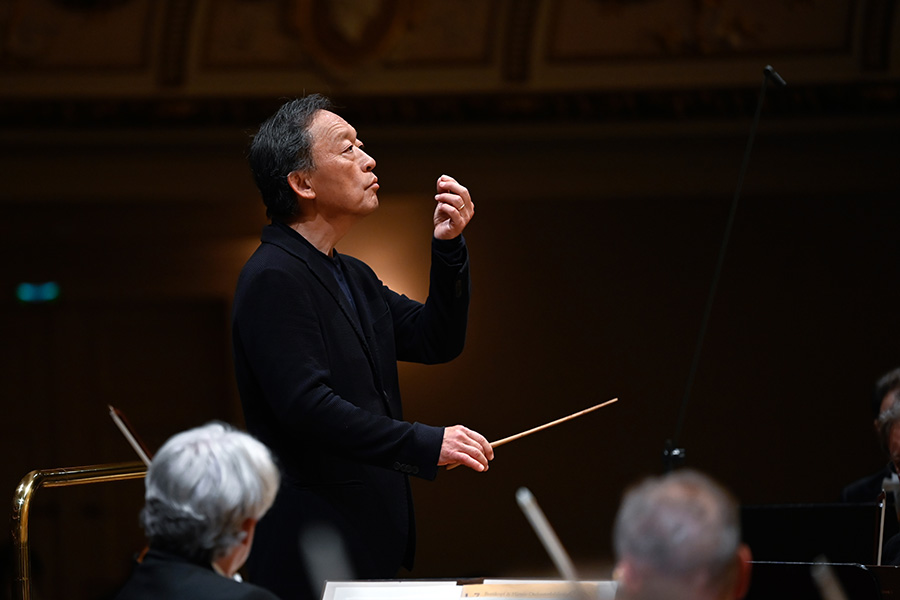
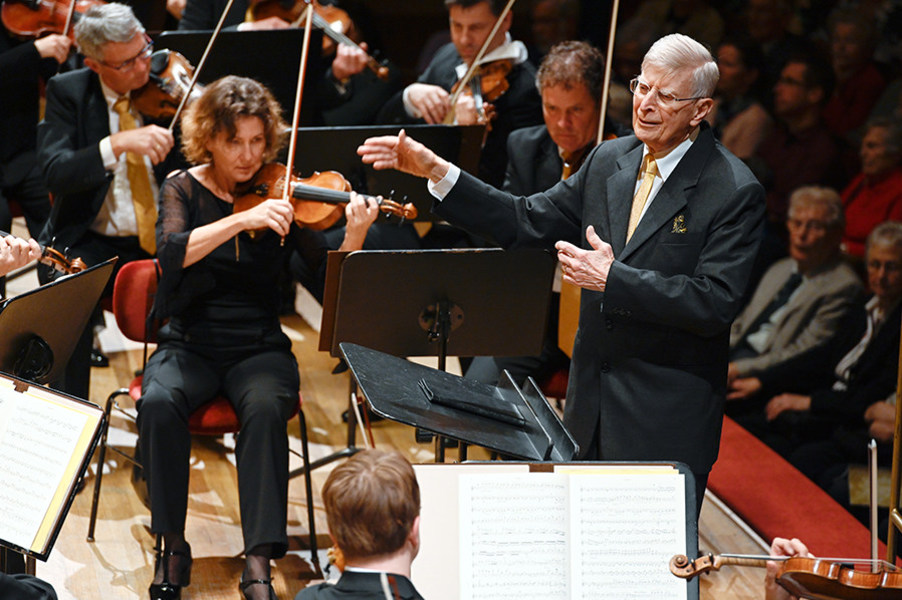
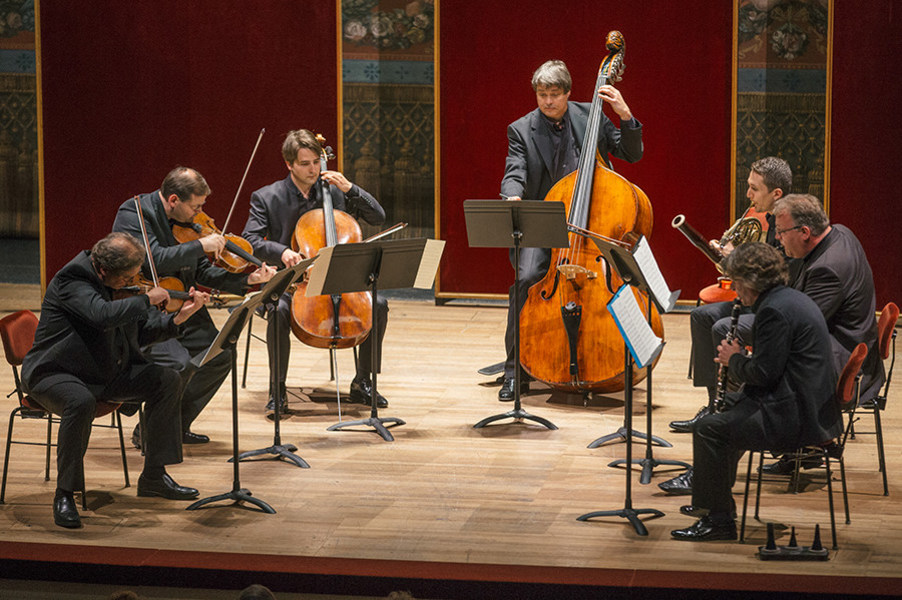
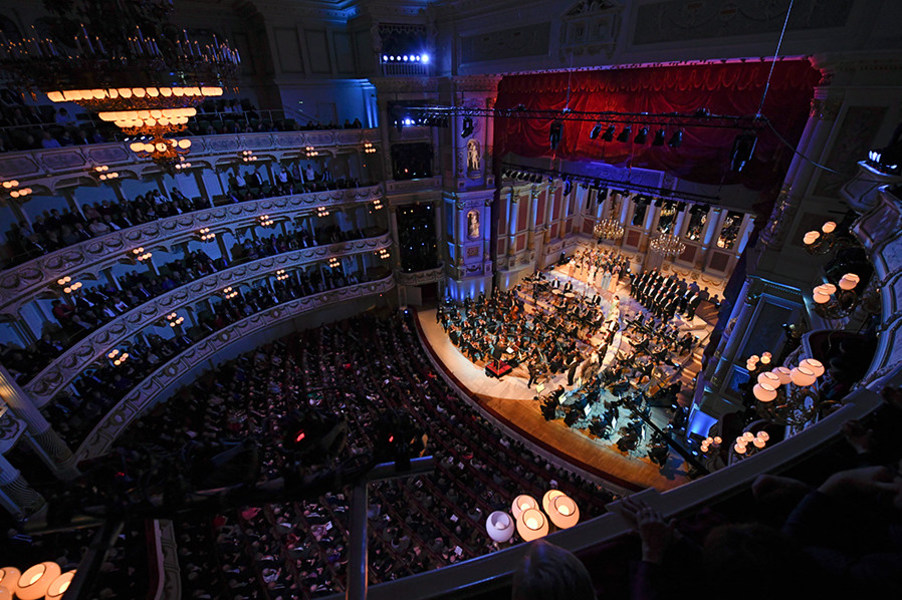
Website

